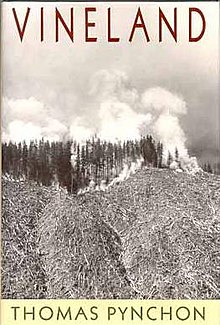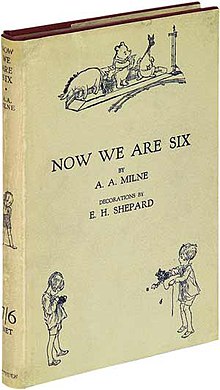Advertisement
If you have a new account but are having problems posting or verifying your account, please email us on hello@boards.ie for help. Thanks :)
Hello all! Please ensure that you are posting a new thread or question in the appropriate forum. The Feedback forum is overwhelmed with questions that are having to be moved elsewhere. If you need help to verify your account contact hello@boards.ie
Hi all! We have been experiencing an issue on site where threads have been missing the latest postings. The platform host Vanilla are working on this issue. A workaround that has been used by some is to navigate back from 1 to 10+ pages to re-sync the thread and this will then show the latest posts. Thanks, Mike.
Hi there,
There is an issue with role permissions that is being worked on at the moment.
If you are having trouble with access or permissions on regional forums please post here to get access: https://www.boards.ie/discussion/2058365403/you-do-not-have-permission-for-that#latest
There is an issue with role permissions that is being worked on at the moment.
If you are having trouble with access or permissions on regional forums please post here to get access: https://www.boards.ie/discussion/2058365403/you-do-not-have-permission-for-that#latest
League of Extraordinary Books
Comments
-
New Items:

A Modern Lover by George Moore (1883)
'He was.. bad only because he had not strength to be good'
So this is a very Hollywood novel despite being set in 1870's London. The plot, a young artist moves to the big city but finds it hard to make his mark.
Hence why i describe it as Hollywood-like. Its all about celebrity and talent and trying to be one of the few to succeed.
Interestingly though, unlike most of these kinds of stories our hero isn't all that talented, he's the artistic equivalent of a soap actor he's really not in it for the art either but simply the fame and fortune.
The novel follows the up's and down's of his career and the various women who he uses along the way. Like Hollywood the art industry is often about who you know and this guy has no problem using the various women he meets to open doors for him.
It's a very realistic novel and all of the characters are well drawn. You never really hate the protagonist, he's quite a practical guy really, sleeping his way to the top. This would definitely be written with a gender reversal if done today so its nice to see a man in this position.
There are a few downsides. Its a little longer than i think it needs to be and the story moves in and out of focus.
So at times its an intimate piece and then it moves to a more distant narrator view and then back in again. So there are times when you feel like your losing touch with the characters. Also probably due to this method of storytelling it occasionally feels like people change their minds and opinions a bit to suddenly.
Overall though a pretty interesting story, good characters, its social scene including tennis matches make it feel like its set in the 1920's at times rather than the 1870's. Speaking of which there's quite a few similarities with 'Lady Chatterley's Lover' in places.
A surprisingly realistic and very unromantic romance, written with a sort of cynical glimmer in its eye. Also some good discussions of Art and how public taste changes over time. [4/5]
The Golliwoggs Air-Ship by Florence K. Upton (1902)
Yes there is a golliwogg here so flee now if that without context is enough to put you off.
Another beautifully illustrated adventure starring the intelligent, brave and charming Golliwogg and his 5 lady friends, the Dutch Dolls.
Golliwogg returns from Paris having learned about hot air ballooning and its not long before he and the ladies have built their own.
Unfortunately what follows is really nothing but a sequence of near death experiences that quite terrified my inner child. The wonderful drawings really emote when the Dolls are balling their eyes out and really capture the looks of horror on their faces.
I know Disney pulls this crap all the time and of course everything works out all right in the end (also i'm running a temperature of about 150 at the moment) but still i really could have done with a little more joy and a little less terror.
So not as good as the other 2 of books in this series i've read but still well versed and drawn. [3/5]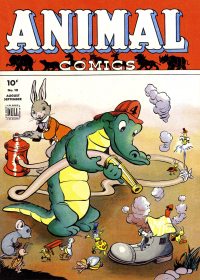
8 issues of Animal Comics (1942)
Really fun comics featuring both looney tunes-style talking animals and some Lassie-like stuff. [4/5]
Film Item:
The Fly (1958)
Well i wasn't expecting this to be a murder mystery but still. Quite good despite the occasional awful dialogue or music choices. [4/5]0 -
New Items:

Plutonia by Vladimir Obruchev (1915)
Well that was disappointing. A book very much in the vain of Journey to the Center of the Earth, The Lost World, the The Land That Time Forgot etc.
However unlike Journey to the Center of the Earth this is a true Hollow Earth novel with all of the geological absurdity that that implies, which is one of the few interesting aspects of the work.
The other good points are that its russian which (on very rare occasions) makes it feel a little different. Also there's some decent repartee amongst our protagonists at times.
Finally there are a few moments of interest towards the end of the novel.
The other 80% or so is unfortunately pretty boring. The writing is basic, and it gets pretty repetitive. See interesting creature, shoot interesting creature, have creature for dinner, rinse, repeat.
Even our hero's actually get bored after a while, and if people are bored with dinosaurs then there's clearly something very wrong .
.
Not well written enough compared to earlier works and not action packed enough to compare with the pulps. [2/5]
A Traveler from Altruria by William Dean Howells (1893)
Utopian fiction, without the utopian part of it :P. So this entire thing is done as a series of conversations, its like one big lecture so not great.
Its a fairly easy read though and since its about the gap between rich and poor its still relevant today. In fact i would say too relevant, or at least too familiar.
There are things of interest here. The writing is easy and witty at times. There's some some very blinkered sexism which you can laugh or wince at. Plus a brief mention of a mega-corporation controlling all aspects of a country, perhaps one of the first appearances of such an idea.
However i'm getting more discerning with every book i read and in a world of infinite books i felt like deducting a star. [2/5]0 -
New Items:

The Last Tram by Nedim Gursel (1991)
Well that was really rather good . I suppose this is technically a set of short stories, although they're so short i'd describe them more as tableau's or vignettes.
. I suppose this is technically a set of short stories, although they're so short i'd describe them more as tableau's or vignettes.
This is a writers book, written for the sake of writing not reading and its rather glorious. A mix of autobiography, fiction and weird fiction. Its about love and sex, loss and loneliness.
From the writing i've deduced the author was exiled from Turkey for some years and that sense of wanting to come home is prevalent in more than a few of the tales. Really nice writing style, the translator i'm guessing did a very good job.
I preferred the weird fiction bits the best and could have done with a few less stories revolving around the authors many amorous encounters but overall very nice album. Thats really what it feels like, a real indie album with the most random assortment of styles and genres but all clearly by the same musician. [4/5]
The Indiscreet Jewels by Denis Diderot (1748)
"such is shall i say it.. the ungrateful nature of Toys, that they never take the good-will for the deed"
Well that made me laugh quite a bit. An 18th century comedy/satire. It features Mangogul king of Congo, loosely based on Louis XV, who asks his wizard for something that will make women tell him the truth.
He receives a magic ring that causes vagina's to speak because that apparently is the only honest part of a woman... ok so not the most pc thing in the world . Surprisingly though i didn't find it as sexist as i thought i would. The author is at times quite moderate, he tends to present multiple viewpoints and mock either extreme.
. Surprisingly though i didn't find it as sexist as i thought i would. The author is at times quite moderate, he tends to present multiple viewpoints and mock either extreme.
There's a lot of witty banter and the writing style is a highlight for me. There are some downsides in that some of the humour is definitely topical and doesn't hold up, but i laughed a lot more reading this than Don Quixote or Gargantua and Pantagruel.
There's also some hilariously subtle filth. On at least a few occasions it took me a minute to parse the language and found something very naughty, and for each of those i spotted i imagine a few more probably snuck past me.
The first volume is better than the second, it almost approaches sci-fi, as people know about the talking vagina phenomenon but don't know the cause. Which leads to all sorts of different effects on society.
The scientists, philosophers and priests all have theories, people start selling vagina muzzles to shut them up etc.
The second volume is a bit more hit and miss, there are various discussions of art and other subjects but it starts to feel a bit repetitive and ultimately you find there was never any great over-arcing plot. It just sort of ends.
Still, if you can parse the Ye Olde language this is quite a fun one. [3/5]0 -
New Items:
.jpg/200px-Gladiator_(novel).jpg)
Gladiator by Philip Wylie (1930)
This was pretty stunning. I knew that Superman took some elements from Doc Savage but it stole even more liberally from this, however i also saw elements of Spider-Man and many other superhero stories, there's even a little Teen Wolf too.
So its a superhero story, or rather THE superhero story, i can't stress how bizarre this is to read as being from 1930 its essentially inventing the superhero genre but its also a deconstruction of the superhero.
It is at times light and even farcical but it has sex, violence, blood, death, despair and prostitutes. It simultaneously has as much in common with the 50 years of bright and shiny Super-Man as it does with Watchmen and all of the 'dark and gritty' superhero's of today.
It is the Alpha & Omega of superhero's. Somehow encompassing the entire genre and here it is written in 1930, amazing.
I'm generally not a fan of 30's writing its a little plain for my taste, so this is like if the 'Mona Lisa' was done in crayon, i ended up listened to most of it on a Libravox recording.
A really fascinating read for any fans (or enemy's) of the Superhero genre. [4/5]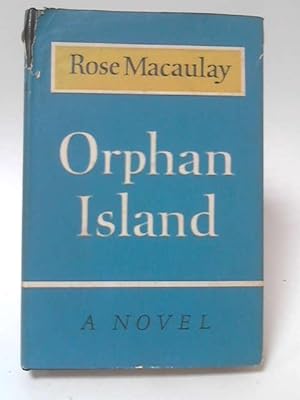
Orphan Island by Rose Macaulay (1924)
"Will it seem, in its 1923 stage of knowledge, as.. backward.. as it did to those who broke into it after its first seventy years of segregated history?"
That was ok. The plot, a group of orphans and a couple of adults are stranded on a desert island in the mid-1800's.
In the 1920's a rescue party of sorts finally arrives and finds this society based on victorian values. Its a bit like one of those Star-Trek episodes where they end up on Roman planet or Gangster planet or something.
It really makes fun of the class distinctions and history of britian but its a fairly narrow book. It just has that one idea to carry the entire work.
And as to the quote above, YES is the answer. While it tries to take apart class disparity it is still pretty racist and with no appealing female characters despite its female author.
I found the writing a bit odd, its descriptive parts are quite florid compared to the rest of the text. So its normal, normal, florid flourish, normal normal normal florid etc. Its not good odd or bad odd, i just found it odd.
The story moves pretty quick and has some humour to it, mostly dark humour from my point of view.
I was a little surprised their was so little mention of WWI. I kind of expected that to be a major demarcation point between the victorian society and the people of 1920 but it barely got an acknowledgment. [3/5]0 -
New Items:
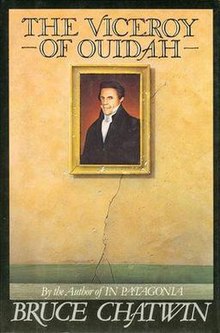
The Viceroy of Ouidah by Bruce Chatwin (1980)
Pretty decent novella. Originally intended to be a non-fiction biography of a famous slave trader. The author felt he hadn't managed to get hold of enough facts so changed a couple of names and published it as fiction.
A very rich and vivid descriptive style. But its still essentially a biography an i'm not a big fan of bio's.
Many books are more fun to 'have read' than 'to be reading' this is the opposite. Fun to read due to the style but didn't feel like i took away too much from the experience. Also quite short. [3/5]
The Phoenix and the Carpet by E.Nesbit (1904)
So this is a direct sequel to 'Five Children and It', so if you havn't read that first this might seem a bit odd in places.
I think i rated both books the same, this is superior in places but has a harder time trying to find reasons for things to happen and struggles to avoid repeating itself.
There's some jokes which might appeal to adults rather than kids in places so not a terrible thing if your reading it to someone.
Overall not a huge fan but entertaining enough. I listened to some of it on a very good Libravox recording by a Helen Taylor. [3/5]
The Witches of Eastwick by John Updike (1984)
So firstly, this bares as little in common with its film adaptation as 'The Stepford Wives' soooo... not a lot. Unfortunately this isn't the boon you might think it is.
Set in the sixties and with certain feminist (or attempted feminist) undertones it does actually have a certain 'Stepford Wives' vibe at times, mixed with the 'Master and Margarita' perhaps. However its far inferior to either of those.
Its main problem is that nothing happens... i mean Nothing! There was a few moments of interest at about 4/5's despite the main characters seeming to completely change their personalities, but that faded fast.
The writing style is truly awful, it is both overly specific and yet still somehow incredibly vague. I have a pretty good ability to picture events from books but with this it was always a half-formed image.
The author uses the most ridiculous metaphors and combines them with nested sentences. You'll often have the start of the sentence the weathers but quite nice here lately i've been watching some of the tennis then a few extra sentences in the middle before getting back to the point :P .
But the main issue is simply that it feels really pointless. Half-formed characters with a half-formed narrative. To steal some shakespear 'full of sound and fury, Signifying nothing' but with only a very small amount of sound and fury . [2/5] 0
. [2/5] 0 -
New Items:

Land under England by Joseph O'Neill (1935)
Well that was really something. I was expecting 'Journey to the Center of the Earth' but instead got a dystopian story in the vain of the 'Time Machine' (but much better).
A really nice original dystopia and deep psychological examination of how it came to be. This is when the book is at its best. The more our protagonist begins to understand this lost civilization the more interesting it becomes. For a brief period its a truly great novel before dropping slightly back to just really, really good .
.
Unfortunately the author isn't great at descriptive writing, combined with the bizarreness of the location this meant i had a hard time picturing the story at times. Luckily this is mostly only an issue at the start and end of the book as the dystopian elements don't really require the same sort of visuals. In fact much of the story relies on the lack of any visuals in this underground world.
As i said one of the times i would have liked a more descriptive style is at the end and this is also when the novel takes a hard left turn. The ideas it raises are much different from the dystopian elements used before and it almost feels like you've wandered into a different story, although not a bad story, its just a bit jarring. I also felt the ending used a bit too much writing as the author tried for a really dramatic climax.
In any case is you like things like The Time Machine, A Crystal Age, Herland, Erewhon or similar fare, this is an excellent read, it also has a certain Kafka-esque quality at times.
A deeply interesting dystopia in the trappings of a Hollow-Earth adventure novel. [4/5].jpg/220px-CatsCradle(1963).jpg)
Cat's Cradle by Kurt Vonnegut (1963)
Dark, potentially apocalyptic comedy in the vane of Dr. Strangelove or the Mouse that Roared.
From very early on i was expecting to give this 4 out of 5 at least. The Only other Vonnegut i've read is Slaughterhouse-Five and this was much lighter and easier to read. I gobbled up the tiny chapters and was really enjoying myself.
Not quite sure what went wrong. Perhaps my expectations were too high, or the heavy foreshadowing just robbed the denouement of some of its impact.
Another case of anticipation being more enjoyable than gratification. Still its pretty fun and its not a terrible ending just not as good as i was hoping for. [3/5]
The Legend of Sleepy Hollow by Washington Irving (1820)
Short funny tale. Not a lot to it but good characterization and descriptions. [3/5]0 -
New Items:

Simplicius Simplicissimus by Hans Christoffel von Grimmelshausen (1669)
A very mixed bag of story. Its split into five sections plus some extra stories which we'll call the appendix but before getting into the parts a brief general overview.
So the writings good and very easy to read at least in the translation i had. I think the translator is a 'A. T. S. Goodrick', i got it from Project Gutenberg.
Its mostly a biography and history with satire and comedy elements, there tends to be some quite witty lines every so often.
One of the best things is the sprinkling of whackiness, once in a while a wizard, fortune teller, ghost, witch or other bizarre character will show up in this otherwise normal story, which for me was always a pleasent experience.
Sidenote, the version i had skipped a couple of pieces, one involving our hero seducing some women and the other a trip to an underwater kingdom! Really! of all the stuff that could have been left out of this he skips the fish people.. that was annoying.
Oh yes before i forget this is set during the Thirty Years War which i know nothing about. However based on this book it seems to have involved at least two factions of germans as well as the Swedes, and a little bit of involvement from some croatians and maybe some Swiss, possibly some French aswell.
One of the odd things is that no one here seems to be fighting for a cause they switch sides at the drop of the hat. Theres no patriotism, its a very in the trenches viewpoint which is pretty intresting.
Lastly the protagonists personality and especially his religious tendencies vacillate wildly and ridiculously throughout.
Anyway on to the individual parts/books:
Book 1: Out hero starts off as a lovable idiot like Forest Gump or the Good Soldier Svejk, which allows him (and the reader) to get through some truly horrific war scenes. The term 'rape and pillage' doesn't even come close.
By far the most brutal and interesting parts of the story.
Book 2: Our hero changes from lovable idiot to an innocent and religious savant, like an Omish Sheldon Cooper.
Book 3: Another change this time into a military genius, like some combination of Sharp, Robin Hood and Omar Little from 'the Wire'. I did not see that coming.
Also all of the horrors of war are now completely forgotten about since our hero is now a soldier. It becomes the most Disneyfied version of a military conflict.
Book 4: Retiring mostly from the army our hero takes on about every job known at this time of history. Its a bit of a mess but there is some good satire here and there.
Book 5: The story continues to drift about and seems to get faster and faster. Seriously, at one point we end up back in the army promoted, fight in a battle, wounded, retired again and moved to Switzerland; in the space of about 2 pages.
I guess the author must have been getting as impatient to end this thing as i was.
Appendices: But later a few additional stories were found, the main one being a desert island adventure. I kind of skimmed these but the island story does have some more of those wacky moments which i like.
Overall, a lot of little bits of stories strung together, the early books probably superior to the latter ones but the author has a lot of neat bits scattered throughout. [3/5]
Castles of Athlin and Dunbayne by Ann Radcliffe (1789)
I've previously read the 'Mysteries of Udolpho' and the main complaints people have against that are the overly detailed descriptions and its overall length.
Both of these factors are absent from this shorter work but unfortunately its the poorer for the loss.
Without all that rich description it feels a bit colourless and without the length you simply don't have time to get a grip on the characters. Events move at a brakeneck pace and Radcliffe's usual method of suspense is undermined by how quickly it then gets resolved.
Its by no means terrible, there's some interesting bits including a very 'Sofie's Choice' situation.
However it manages to hit every cliche imaginable and has a number of elements very similar to those in Udolpho. And even if you havn't read any other Radcliffe this still manages to repeat itself on a couple of points despite its brevity. It's also very predictable.
If you want to read something like this you should probably just try 'Castle of Otranto' instead, which at least has some weird stuff to make things more interesting. [2/5]
5 episodes of It's That Man Again (1945)
Radio-comedy. Virtually unlistenable. The comedy is so era specific it might aswell be written in a foreign language. [1/5]
Film Item:
The Man in the White Suit (1951)
Classic bit of sci-fi satire about an invention thats just too good. [4/5]0 -
New Items:

2001: A Space Odyssey by Arthur C. Clarke (1968)
A reluctant 4 stars, maybe 3.5. The structure is the first problem with it being split into several scenes and the reader knowing so much more than the actors.
This is of course the same structure as the film however that version was so mysterious it never really felt like you knew anything :P .
This on the other hand has NO mystery, None. Everything that was a question in the movie is here explained in detail.
Honestly at the start, it felt like the aliens were going to be a couple of low level construction workers and a guy back in a cubicle somewhere tapping some keys. I'm not saying thats what happens just that was the impression left on my mind after the rather flat opening.
While there's some interesting world building along the way nothing until after the HAL incident seemed better than ok. Only from past that point, (which is handled much more impressively in the film) do things start to pop.
Anyway due to the flourish towards the end i'll give it the 4 stars. By the way the last sections reminded me very strongly of the movie 'Interstellar'.
Edit: Also strong vibes of that Star-Trek Next Gen episode with the casino . Its also funny how advanced some of the science is in this compared to stunted social views. The space-pods are named after women because they're considered to be quite unpredictable, wheres the roll-my-eyes emoji.
. Its also funny how advanced some of the science is in this compared to stunted social views. The space-pods are named after women because they're considered to be quite unpredictable, wheres the roll-my-eyes emoji.
Also by the year 2001, women will have advanced to point where they can be secretaries or flight attendants.. oooohhh! this is so sci-fi . [4/5]
. [4/5]
The Devil in Love by Jacques Cazotte (1772)
That was somewhat disappointing. Any story where a Devil (or Death) turn up in human form, tends to be pretty awesome. Thats an aesthetic or plot-point or whatever that i quite enjoy.
This however was fairly bland given the setup. I'm absolutely sure its losing something in the translation but it can't be losing THAT much.
One issue plot wise is that the protagonist is constantly trying not to sleep with this woman, because it would be dishonorable or something. Ok, thats a little strange given this is written by a french guy and given the time period when things were a little more liberal.
I was thinking our hero is spanish so maybe this is a commentary on the spanish being more uptight than the french, but then he clearly sleeps with a lot of other women!
So the rule seems to be its only wrong to sleep with someone if there's a chance you might marry them later? Bit confusing.
Anyway, this story just never did enough with the supernatural elements, it never created that air of wrongness that you usually have in these kinds of stories and frankly the ending was very anti-climactic.
I guess it sounds like i'm completely trashing it but its still ok but far below my expectations. [3/5]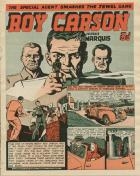
4 issues of Roy Carson comic (1950)
Just the worst kind of stereotypical detective/gangster schlock. And very repetitive even in the small selection i was able to find. [1/5]0 -
New Items:

The Ancient Allan by H.Rider Haggard (1920)
We start off in the 1890's with Allan Quartermain visiting a lady friend and then essentially Quartermain tells us an adventure tale of one of his ancestors. There's some weird stuff involved which i won't spoil but thats the gist. This whole setup is by far the most entertaining part. Witty, interesting, and just very fun.
So the main text itself is set in ancient Persia and Egypt. I'm guessing its around the same time as the movie/comic 300, as the Persians are busy fighting the Greeks.
Anyway so as i've said this is an Allan Quartermain story, Quartermain being most well known from King Solomon's Mines.
This also acts as a prequel and sequel to another Quartermain novel, The Ivory Child, so you'd probably want to read that first or a synopsis of it.
The main text of this is pretty standard adventure fare, but the author is well aware of that and tries to fast forward though the boring bits.
He also uses some fortune teller characters who lay out many of the details before they happen. Sort of acknowledging its predictability. So this is not a book which is relying on its plot, not in the broad details anyway.
This is a story which lives in the small moments. It has really distinct characters and a fair amount of humour. There's some real charm here.
It's still a product of its time and as with all Haggard is both sexist and racist, however it also has some very strong female and non-white characters.
Allan Quartermain as a character is often said to be a proto-Indiana Jones, however, he mostly takes on one of two roles in these stories.
Either as a Watson style narrator to some more badass characters' Holmes, or as a Green Hornet-like character. The not-entirely-useless-but-close white man dragged through the adventure by his much more competent ethnic side-kick.
In The Ivory Child he was very much the latter, in this he's a little more active but his side-kick and the other characters are still calling most of the shots.
There's some magic and crazy stuff here and some decent action especially towards the end, in fact the end battle seemed suspiciously like that of the 'Pelennor fields' from The Lord of the Rings :P .
But mostly it was just the charm that kept me going, also its short . By far the most likable version of Quartermain i've yet read, even if most of it was technically his ancestor... rather than the modern character but still. I mean its the same character, just from a different time if you see what i mean... how to explain this... ok... its like one of those Tom and Jerry cartoons where they're Musketeers or ancient Romans or something
. By far the most likable version of Quartermain i've yet read, even if most of it was technically his ancestor... rather than the modern character but still. I mean its the same character, just from a different time if you see what i mean... how to explain this... ok... its like one of those Tom and Jerry cartoons where they're Musketeers or ancient Romans or something  . [3/5]
. [3/5]
Amerika by Franz Kafka (1914)
Another of Kafka's unfinished works. A lot like David Copperfield, from what i read of it anyway the entire middle-third is a bit of a blur because i could not bare reading it properly and skimmed most of it.
You know those tv programs, mostly comedies or comedy-dramas, the ones that make you cringe? Those horribly uncomfortable social situations that make you squirm in your seat? Well thats how this made me feel.
I have a particularly tender spot for that sort of thing, i really.... can't stand it. So i suppose i should applaud Kafka, as i've never experienced that cringiness through the written form before, i've read Copperfield, Wuthering Heights, The Dram Shop by Emile Zola, 120 Days of Sodom, and many others which have made me feel uncomfortable for one reason or another but nothing quite in this way.
As i've said it has a very similar outline to David Copperfield with its rather innocent protagonist that keeps getting taken advantage of. The story's not bad although it is incredibly random. And there's some of the battles with those in power seen in the Castle but in very minor ways. Also Kafka's ability to suddenly show a situation in a new light, that i really loved in the Castle, is also there, again only to a small degree.
So quality wise not awful, at least the bits i saw from between the fingers over my eyes . Enjoyment-wise i hated it with the heat of a thousand suns
. Enjoyment-wise i hated it with the heat of a thousand suns  . So obviously my rating is based on the former :P . [2/5]
. So obviously my rating is based on the former :P . [2/5]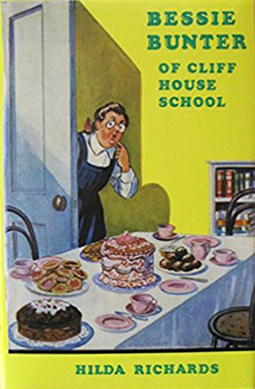
School Friend #1 (1919)
Short story introducing the sister of Billy Bunter, Bessie and her schoolmates. Bessie comes across a little bit smarter and therefore more evil than Billy. Also because they're girls her schoolmates can't just beat the hell out of her like the boys do to billy, thus making her a little harder to deal with. [3/5]
Film Item: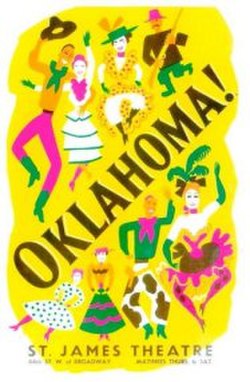
Oklahoma! (1943)
Watched the 1999 version. I still dislike musicals and the Western aesthetic but this still wasn't too bad. No particularly good songs but darker and weirder than expected, in a good way. [3/5]0 -
Advertisement
-
New Items:
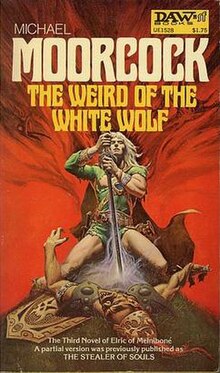
Elric of Melniboné by Michael Moorcock (1972)
Mature fantasy with great original world building. Really liked the start and end.
The opening is like some super-over-the top Conan novel but the last third felt more darkly humorous, as if the characters had wandered into Time Bandits or Labyrinth or something.
The main problem in my opinion is that at the start you really get to know the main hero but once the central plot gets going there seems to be a change in style and the reader gets pushed away. I never really felt connected to the protagonist after the first third.
Its also quite a random and fragmented story, as if it was a much longer book that was heavily pared down.
An interesting and unique feel, but it didn't make me care enough to want to read the rest of the saga. [3/5]
Andorra by Max Frisch (1961)
Really good play about a small fictional country presumably on the german border where tensions are growing as they expect an invasion. Mostly about racism but its more than that, it has a very Greek-tragedy feel to it, a conspiracy of circumstance and human failings. At times it also reminded me of Shirley Jacksons 'The Lottery' or 'Lord of the Flies'.
Only a couple of problems with it, one is a side event which happens to one of the female characters, its horrific and is really not addressed in any meaningful way. Its just sort of brushed aside, i found that a bit weak.
The other problem is probably a translation issue but i felt like some of the speeches were... a bit confusing, a little too esoteric or something. However i was really close to giving it five stars. [4/5].jpg/220px-Captain_Slaughterboard_(cropped).jpg)
Captain Slaughterboard Drops Anchor by Mervyn Peake (1939)
Childrens picture book. I like the drawings but that was a little too random for me. Also even as a child i think i would be annoyed that most of the characters disappear from the story half-way through.
Sidenote, its really, really gay. I'm not saying that as a positive or negative just thought it was interesting . [2/5] 0
. [2/5] 0 -
New Items:
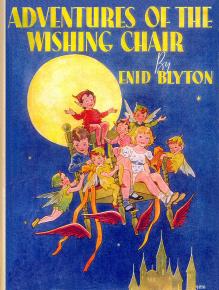
Adventures of the Wishing-Chair by Enid Blyton (1937)
Do you want distinct characters, rich descriptive writing, emotional involvement and that mix of the fantastic and grounded that makes a story feel truly magical? Then you should look elsewhere because this book has NONE of that :P .
This is Blytons knockoff of E.Nesbits, 'Five Children and It' or maybe the sequel the 'Phoenix and the Carpet'.
Blyton does here to children's fiction what Edgar Rice Burroughs does to adventure fiction. And NO, the fact that this is aimed at kids does not excuse the poorness of the writing.
Now its not without a certain excitement. Bad writers have two advantages over good ones. Firstly is speed, a bad writer can fit as much incident into a couple of pages as a good writer would in a couple of chapters.
Also good writers like good politicians tend to be hampered by logic and reason. A bad writer like a popular politician feels no need for there to be any rules and can throw whatever random nonsense they like into the plot.
Its true that some good books can feel almost as random, 'Mary Poppins' for example is at least as variable a this, however that randomness is offset by grounded moments that make the weird ones stand out through contrast.
Despite the very short chapters i rarely made it through one fully engaged. The flatness of the characters and mediocrity of the writing making it so hard to care. Literary beige.
The book version of a straight to dvd disney film. As mentally stimulating as an 'Adam Sandler' movie. Narrative horse-tranquilizer. Whenever you start to enjoy it you can actually feel a few more braincells commit hari-kari. Everytime someone praises this book a fairy dies...wait..wait.. i'm sure i've got a few more ...
...
ok i've just realised i'm putting way more effort into finding ways to insult this book than the author did in writing it, so i guess i'll stop :P . [2/5]
The Golliwogg in War by Florence K.Upton (1899)
Kind of messed up but everything works out ok in the end. Great drawings again and a good message overall. Given it's from 1899 i really wasn't sure how the story was going to go. Not exactly anti-war but not pro either.
And i like that the characters have different reactions to the situation. [4/5]
1 issue of the Black Sapper (1971)
Not an awful comic. Bit repetitive and racist, also not much jeopardy but decent enough. [3/5]
Film Item:
3 episodes of Supercar (1961)
Early thunderbirds proto-type. Good characterization, ok stories. [3/5]0 -
New Items:

King of the City by Michael Moorcock (2000)
A surfeit of pleasures.
A modern Dickens, which it doesn't try to hide, it even makes a direct reference to Bleak House . Wonderful descriptive writing, 5 or 6 big vivid set pieces that you'll never forget. The characters are hyper-real, like real people but just a bit more interesting than any real person has a right to be .
.
The narrator has his own unique voice, with his own slang etc. this can be a little disconcerting at the start but you soon get used to it.
In similar fashion to Mother London we start off in present day (circa 1997) then jump back in time and get a biography of events until we catch up with ourselves again in the last chapter. Unlike Mother London, there is only one point-of-view character and the time jumps are kept to a minimum, so in that regard its far easier to follow.
Nevertheless, i still got a little confused at times as to the year or mixed up among some of the side characters. It doesn't help that some of the cast have nicknames or are sometimes referred to by their first or last names.
Its a very England and London specific book so there were a lot of references i didn't get. Some of the political and social elements went over my head too. But none of that mattered in the end.
Like most Dickens novels there is a plot but nobody pays much attention to it. You could say its a commentary on the rise of consumer culture and the 1% but its really about the development of the various characters. And as for those characters, this time around (see below) our incestuous triumvirate are three cousins, our POV character who is an ex-Rock n'Roll star turned photojournalist, a hyper-intelligent Angelina Jolie-esque aid organizer and a man i can best describe as a combination of Gordon Gekko and Charles Foster-Kane.
It wasn't always perfect, there where peaks and troughs but overall a very easy 5 stars to give. An incredibly dense feeling book, 110% of story.
Sidebar: Ok this is so weird, Moorcock has now written the same story at least 3 times! First there was Elric of Melniboné , then Jerry Cornelius and now this. That's not to say the stories are similar, they're all incredibly different but its the difference between '10 things i hate about you' and the 'Taming of the Shrew', or perhaps a little further apart, like 'Sons of Anarchy' and 'Hamlet'.
With 'Jerry Cornelius' i dismissed the similarities as Moorcock just being short of an idea but by now it feels more deliberate. As if the author is working on some sort of Meta level, creating his own myth-cycle or something.
Anyway none of that actually matters, this is an entirely self-suffient book so i've reviewed it entirely on its own merits. [5/5]
Golliwogg in the African Jungle by Florence K.Upton (1909)
I thought this was going to have many more issues, i was expecting cannibals but apparently they appear in 'The Golliwoggs Bicycle Club' instead, which i havn't read yet.
Anyway, the africans in this arn't portrayed too badly, they look a bit like the ethiopians from South Park. The racial issues are mostly avoided in favour of big game hunting! But don't worry, things take a more peaceful turn before any animals are harmed.
Although in the background pictures i did spot one of the dutch dolls steal and fry up some ostrich eggs, which was quite funny, especially since its not referred to at all in the text.
Overall pretty decent, it seems to have more text than the earlier books. Nice drawings as usual. Obviously the african setting does nothing to downplay the problems inherent in the hero's appearance. Also he doesn't do anything really brave or intelligent in this like he does in some of the other works. Its mostly the dutch dolls to the rescue. [3/5]
10 issues of Viz comics (1979)
Yeah i can see the appeal, if i was a teenager this would be the greatest thing ever . [4/5] 0
. [4/5] 0 -
New Items:
The Monikins by James Fenimore Cooper (1835)
"That of all the 'oracies (aristocracy and democracy included) hypocrisy is the most flourishing"
A dry humoured socio-political satire involving a voyage to fantastic places. An american Gullivers Travels.
So much of this still applies to the world today, i don't know whether to be horrified that nothing has changed or comforted that we apparently survived it last time .
.
I do rather enjoy my Gulliver-esque type satires and this was no exception. I was genuinely close to giving it 5-stars despite all the reasons i should have dropped it to 3.
I've only read one other Fenimore book but i don't recall the language being this hard to parse. I think its a combination of Ye Olde english and all of the sarcasm in the story.
Sarcasm can be hard to absorb in the written form even for a modern writer, so 100 year old sarcasm.... thats a hard one. It actually took me a third of the book before i was sure it was a satire.
Also nothing fantastic happens in this first part but we still get some funny satire about how peoples opinions change depending on their social position or financial status.
Finally though the Monikins show up which are talking monkeys. Eventually leading to an exploration of the Leap islands, Leaphigh being a satire of england and Leaplow a satire of america.
Its an incredibly sarcastic book, then there's some really long legal and philosophical jokes, we have the satire and also some just genuine straight-up comedy.
For example there's an onrunning joke about the ships captain kicking the cabin boy in the ass, which Cooper gets surprising mileage out of.
Apart from the obtuseness of the language i also had problems knowing exactly what was being satirized. I could see the satire in the general sense but there were a lot of elements i felt were direct references to things i couldn't understand.
For example in Leaphigh (england) the monarch has no power, this being taken by their first male cousin. The first male cousin must be the primeminister but i don't know why its referred too in this manner.
There was a LOT of times like that, where i felt i was missing some historical context.
Also of note when we do get to Leaplow (america) towards the end, there is a lot of political satire. So if you don't know the american setup with its supreme-court, 3 branches of government, senate and congress etc. Then you may find it extra difficult.
Overall though, despite the obtuseness of the language, the loss of historical context, the elements of sexism and racism (which i'm sure wasn't all sarcastic), nevertheless i REALLY liked this one.
And the ending... oh boy, not the most original but there was a certain odd twistedness to it that added some extra punch . [4/5]
. [4/5]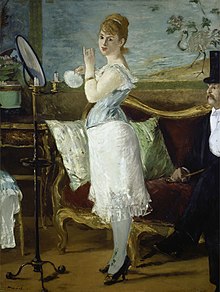
Nana by Emile Zola (1880)
Not a bad story for what it was. As a way of showing a certain type of culture and behaviour it works well but it doesn't really engage on an emotional level, despite being well written and richly described.
The only other Zola i've read is L'Assommoir (The Dram Shop), which featured Nana's mother as the main character and that was very engaging and harrowing.
Nana however doesn't have much of a character to empathize with, being shallow, uneducated, impulsive and self-destructive.
Ironically given the nature of the story the author uses her to fulfill whichever role he needs, much like the other characters do. Her personality changes somewhat with each chapter and said chapters are so self-contained it almost becomes a collection of short stories.
Nana's lack of and changing character, a large cast and the episodic nature of the tale all combine to keep events feeling remote to the reader.
Which on the one hand is a good thing because i don't need to be emotionally scarred again , but on the other hand still makes it less compelling.
, but on the other hand still makes it less compelling.
On a side-note the story reminded me strongly of the film Pandora's Box at times, which can't be a bad thing . [3/5]
. [3/5]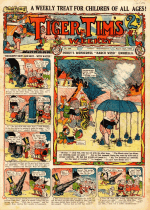
5 issues of Tiger Tim's Weekly (1928)
Mix of comic and prose. Some racial issues and pretty insipid but not bad. [3/5]0 -
New Items:

The Theory of the Four Movements by Charles Fourier (1808)
Well that was mostly terrible but not entirely so. I'll try to break this down.
We have about 5% cult-leader style self-promotion and praise, the author compares himself to Columbus and Hercules at various points.
About 10% wacky interpretive fiction, something along the lines of Phrenology or Astrology but he applies it to everything in his 7000 year old universe. From peacocks to the northern lights to the fact Earth doesn't have cool rings like Saturn (he seems particularly bitter about that :P ), in the authors view these are all symbols placed by a god to tell us we're doing things wrong.
Another 5% is fairly well aimed critique of civilization and capitalism, the critique is far longer than 5% of the book but only about 5% is not tedious.
So i think we're up to 25%, now, add 65% mind numbing tedium and we're left with a 10% golden nugget of wisdom.
The authors utopian ideas are not terrible, his attempt being to create a system in which peoples greed, jealousy, ambition, sexual passions etc. are beneficial rather than destructive. Using a short of rival club system combined with the usual commune idea.
However the real highlight is the authors views on slavery and especially the role of women in society. Frankly in some ways his views are more advanced than those of today. Although he doesn't go into too much detail, meaning his views on female equality may not entirely be the same as a modern view of female equality.
Nevertheless some really interesting stuff, like i say a lot of the time after reading an old book, nothing much seems to have changed , the authors critique of capitalism and gender equality still being annoyingly relevant.
, the authors critique of capitalism and gender equality still being annoyingly relevant.
Overall though still boring as hell . [2/5]
. [2/5]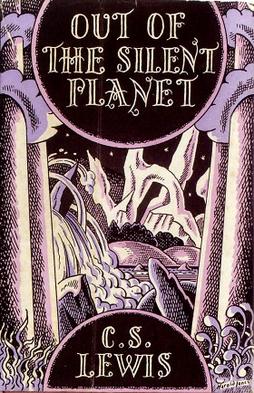
Out of the Silent Planet by C.S Lewis (1938)
So this is Lewis's knockoff and attack on H.G. Wells novel 'The First Men in the Moon'. Its also basically Narnia in space but with even less happening. A sort of dry utopian story with religious allegory. Not as bad or religious as some books like 'A Journey in Other Worlds'.
Most of the fun comes from comparing it to First Men in the Moon so i;m not sure how much those who havn't read that book will get. For example, 'First Men' has two protagonists, the scientist and the business man, this book portrays them both as monsters and adds a third character the religious philologist as our hero, wow subtle :P . It also does the rather pointless postscript which 'First Men' also used (although the latter doesn't call it a postscript but it certainly feels like one) .
I'm not sure what the main idea was that this book was trying to convey perhaps it was that the human race deserves to die out, or that people should stay where god put them, or that the universe is doomed anyway so why bother trying to stay alive, or that this life is a dud but there's an afterlife so we might aswell all kill ourselves, all of which seem pretty stupid ideas. On the other hand if the whole thing is an indictment of colonialism then it works quite well .
.
There is some good stuff here i especially like a view on how something you experience is built into you for the rest of your life, although that also seemed like a allegory Lewis could use to avoid having sex with his wife again .
.
Short and not badly written, although it certainly feels like it ripped off the writing style of Wells not just the plot, very 1890's rather than 1930's. [2/5]
Sexton Blake, the Case of Atwell Aircraft Company by Anthony Skene (1922)
Short detective/espionage story, featuring the villian Zenith the Albino. Reminded me somewhat of The Thirty-Nine Steps but better. [3/5]0 -
New Items:

A Legacy of Spies by John Le Carre (2017)
Context, this is the first Le Carre i've read, the espionage genre not being a favourite of mine. My only Le Carre experience is the last film adaptation of Tinker, Tailor and the Nightmanager mini-series.
While there are clearly at least a couple of other Le Carre stories being referenced in this i didn't find that offputting or detrimental to the book.
Overall its a well crafted and detailed plot with likable characters and while not much in the way of action its realistic and generally compelling.
I did however have a few issues with it that could have brought the rating down but i decided it was still worth the 4-stars in the end.
So the very general plot is that in modern day questions are being asked about an old operation called Windfall. So you have a lot of back and forth between the present and past.
First issue is that Windfall only actually starts about half or maybe two-thirds of the way through the novel. So when we finally get to that point it undercuts everything thats gone before, makes it feel a little pointless. I don't think it's a good narrative device to make the majority of your book feel like prologue. Don't get me wrong all of the previous stuff is great, its only when i realized that it was all preamble to the actual Windfall operation that it put a bad taste in my mouth.
My other minor issues are about the endings, there are of course two of them one for Windfall in the past and one for the present. In the present it feels a bit Deux Ex Machina and also some of the characterization of one of the final people to appear just felt... odd. Some of it was good but some not so good.
As for the climax of Windfall, what the entire book feels like its been leading up to... amazingly this is the one place the author decides to skimp on the details. All this build up and yes we get the general outline of what happened but far less information than i would have liked.
Perhaps the author felt he'd dropped enough hints throughout, that it would be insulting to the reader to do a blow-by-blow at the end but i certainly wanted a more indepth account.
As a whole though, undoubtedly well written, but didn't convert me to an espionage fan.
Edit: Having looked at some other reviews i now understand a lot of the details i was missing are from another Le Carre novel 'The Spy Who Came In from the Cold.' [4/5]
Travels and Adventures of William Bingfield by William Bingfield (1753)
The writing in this is pretty basic, functional at best so i was expecting to give it 2-stars but it has some redeeming qualities.
It starts off as a pretty basic castaway tale and hits all the usual tropes, ridiculous coincidences, cannibals, the happy black servant. Its also slightly racist, sexist, classist and religious but actually in a very mild manner for the time. ___
___
Its main bit of weirdness is the creature it mentions in the blurb, the Dog-Bird, which seems built like a cassowary but with the personality of a velociraptor (at least the film kind) and trainability of a german shepard. It should be noted the author gives up on this Deux Ex Macina after the first volume.
On to the good stuff though, its a remarkably... human story. People react and behave in ways that just seem very normal and awful in a human way, which seemed unusual compared to the more refined literature of the period.
During the latter parts of the first volume and most of the second it is more an african adventure story than a castaway tale. Like a combination of 'Robinson Crusoe' and the works of 'H. Rider Haggard' before becoming even more pulpy and something like 'Edgar Rice Burroughs'. Especially with out hero suddenly turning into a master tactician and warrior for no particular reason.
Finally though the main oddity of it all was the constant human horror of it. incident after incident of friendly people who suddenly become the enemy or bad human decisions to be made and every time new people turned up your like 'oh god.. here we go'. Its 'Walking Dead' :P it really is... just horror after horror, but not quite as affecting due to the flat writing style.
There's no reason anyone in the universe should be reading this but i wasn't bored while i did . [3/5]
. [3/5]
Supplement to the History of Robinson Crusoe by Thomas Spence (1782)
Short bit of utopianism set on fictional island founded by crusoe. Main idea being, all land owned by the state, interesting enough. [3/5]0 -
Advertisement
-
New Items:

Three John Silence Stories by Algernon Blackwood (1908)
I am a bit prejudiced against John Silence before i read this. Firstly i have read some story with him in it about a werewolf, wasn't a fan, also i already like some of his supernatural detective rivals so it was always going to be hard for him to break into an already crowded field. And he doesn't quite manage it.
I also noticed that for some reason each of the three tales uses a different perspective. The first story, has Silence himself as the point of view character, the second, has really no reason to be in this collection as its just random guy telling tale to people which include Dr.Silence and the last goes with the more common Watson-esque assistant as the P.O.V. character.
This is neither as delightfully weird as 'Carnacki, the Ghost Finder' or as pithy and likable as 'The Secrets of Dr. Taverner'.
While there were times in each of the stories it approached a 4-star the writing just kept going and they always felt more drawn out than necessary. In addition while the writing is quite descriptive it isn't as vivid as Lovecraft or similar authors.
'The air, soft and cool caressed his cheek like the touch of a great furry paw.'
These are very cat orientated stories , ironically the only one not be cat-centric was the one with an Egyptian connection, bit of a missed opportunity that
, ironically the only one not be cat-centric was the one with an Egyptian connection, bit of a missed opportunity that  .
.
One final note, Silence is described as this really great kind guy always out to help people blah, blah, but then i noticed this line
'By some means which I never could fathom, John Silence always contrived to keep the compartment to himself..'
Oh wow thats a great use of your mystical abilities, hogging the train carriage!, ass :lol . [3/5]
Jacques the Fatalist by Denis Diderot (1796)
'And your Jacques is only an insipid agglomeration of facts, some real, some imagined, written without grace and distributed about with no order.'
Philosophical comedy. Its almost stream-of-consciousness writing the author often breaking the fourth wall.
Most of it are these philosophical musings interrupted by various stories. The tales themselves are often broken up and interwoven, so at times even the characters telling them get confused as to where the stories left off.
Whenever i started to get bored there would be some funny moment or interesting idea thrown out. However i still might be rounding up to get to 3 stars. There were some genuinely funny parts, some of the conversations seemed like a Marx Bros sketch at times. [3/5]0 -
New Items:

The Hardy Boys, The Tower Treasure by Franklin W. Dixon (1927)
This was pretty decent, the cast where a little older than i expected, 17 and 18, i was thinking they would be early teens or kids like the Famous Five. The story was also a bit more realistic and how much the heroes were able to accomplish without help seemed believable.
It would have been nice if the female contribution was more than just baking but this is the 20's, i think the 20's and 50's are probably the most sexist of decades in terms of media, as the male-society reasserted its control after the relative female freedom caused by the war years, just a hypothesis.
There's a good bit of interest in the outcome of the case as it effects some of the characters in the story in a very sympathetic way. So there is tension but on the other hand no actual jeopardy. Its like a 60's batman episode where batman and robin have been captured and the narrator says 'Can the dynamic duo free themselves from...' and before he can finish imagine that they've already escaped. That's what happens here, any sign of possible physical jeopardy is so quickly dealt with it seems almost pointless that it was even mentioned, odd choice. There's a greater sense of danger in E.Nesbit books.
The detective elements were quite good and overall i liked it more than i expected too. [3/5]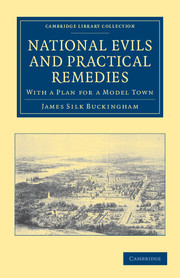
National Evils and Practical Remedies by James Silk Buckingham (1849)
So an interesting bit of utopian planning, although the author hates the word utopian. This is an actual plan nothing too outlandish. The main idea is a sort of corporation, each individual in the town gets a salary with plenty of room for promotion to a higher salary. Everything created by the townspeople is sold off, locals gets first dibs at a discount, and at the end of the year the workers get a dividend in addition to their basic wages.
It seems like a pretty good system, there's free healthcare, daycare, jobs for women, maximum working hours, minimum wage, cross training etc.
Also cheap restaurants which everyone is encouraged to use instead of eating at home and one store for each kind of produce, with all items being put into a catalogue 'Argus' style.
There are also some oddities like wanting all the buildings to be made of iron and a giant light on a tower in the middle of the town capable of illuminating the entire place.
In addition there is no alcohol, tobacco, drugs or firearms allowed in the town.
After the model town plan the rest of the work consists of historical precedents and other facts designed to backup the idea, also ALL of the accounts and inventory numbers needed to realise the plan.
Finally the author goes onto some other general topics like tax and voting reform which i mostly just skimmed. Although there was one part about colonies that caught my eye.
In which the author argues that all of Britains colonies would inevitably become independent and that this was not a problem unless they parted on bad terms. I guess nobody listened .
.
Of some interest but only as a historical curiosity. [2/5]0 -
New Items:

The History of the Sevarambians by Denis Vairasse (1675)
I was still undecided whether to give this 2 or 3 stars, but then near the end i hit the language section. With 20-30 pages of grammar lessons and thought nope 2 it is .
.
So this so is one of those descriptions of a utopia, there isn't much in the way of story, its just a frame for the details of the geography, politics, education, language, religion, history etc of this fictional place.
Its divided into 5 sections, the first is a description of the authors life and a shipwreck which strands 300 men and 72 women on some unknown island.
If your worried that the women arn't going to fair well in that kind of situation... you would be right.
So as to be classist aswell as sexist, the officers each take one and the rest are divided amongst the men about 5 women to each man... ugh.
But don't worry in section 2 they find a utopian society, who are shocked and appalled at the treatment of the women.
Because they're polygamists and feel multiple men to one women is very wrong, it should be mulitple women to one man. Again its also classist as the number of wives you can have is determined by your rank, there an employment bonus like a company car... ugh.
Until all the men can find wives they are given sex slaves instead which are apparently kept around for the use of travellers.
Don't worry though the men have to undergo a medical check for syphilis first, no i'm not kidding they actually did that, yay?
I could make this review really long but it would just be a recitation of everything in here. It is kind of fascinating because there are so many contradictions but overall its still pretty boring.
So i'll simply give a short list of the good and bad points of the supposed utopia on show here.
Good:
Equal education for men and women, semi-equality of employment, 8 hour workday, no poor, no capital punishment, equal male female army, semi-democratic elections, religious liberty, no hereditary jobs.
Bad:
Neighbouring tribes have to give tributes of children to be used as slaves, no private property, censorship, most female soldiers under 18, eugenics with anyone seen as physically or mentally damaged sent to one particular province, children taken and educated (indoctrinated) by the state from age 7, no females in positions of authority, blood sports, corporal punishment, spies sent to foreign lands but only if they have at least 3 children to be used as leverage for their return, all people must get married by 18 or 21 for women and men respectively, if a women can't find a man she must marry one of the high officials who has an open slot in his wife tally, the supreme leader gets first dibs on any pretty women. [2/5]
The Carpetbaggers by Harold Robbins (1961)
If i was to do a one word review it would be 'Inconsistent'. Inconsistent characters, tone, pacing, graphicness, length.. somehow.
This is basically a soap-opera drama, something along the lines of 'Dynasty' or 'Dallas'. It follows the interweaving lives of three main people, a cowboy, a woman based at least partially on jane russel and a howard hughes knockoff. Except then just as your expecting it to finish up it adds two more new characters... what? Who are these people, why is this still going? Its like it was meant to be two books but the author couldn't quite find enough material for the second so instead you have here a novel and a half.
Between the now 5 main characters are about 18 different personalities. There's never any attempt made to use the book medium to advantage. In books its easy to see what people are thinking and get inside their heads but that never happens here, your as removed from them are you would be watching it on tv.
Other oddities are that the book can be quite graphic when it comes to sex and violence, sometimes.. then other times it turns and runs from the sex or violence, again inconsistent.
There are a lot of side characters in this too some of which pay off and others that just disappear from the story suddenly and without a trace.
The various storylines interweave and the plot jumps back and forth in time and from location to location often without any lead in. Everytime you hit a paragraph end you wonder whether the next one will be in the same time or place (and usually isn't). In other novels this would be extremely confusing but somehow here its merely annoying.
Oh and heres a reverse spoiler, the howard hughes character does not end up storing his piss in jars, i kept waiting for that to happen but no, maybe in the sequel .
.
Having said all that, you can't deny its dramatic, if you like your soaps this has a lot of story to munch on and the writing is fine even if the structure is a mess. [3/5]0 -
New Items:
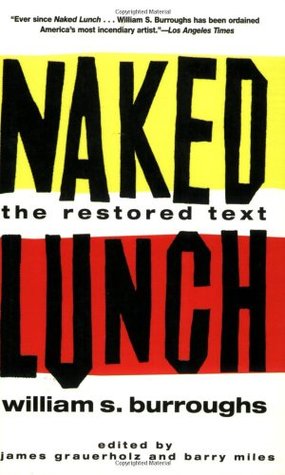
Naked Lunch by William S. Burroughs (1959)
I was genuinely afraid to read this book, so much so that for a time i had removed it from my to-do list completely. I still have scar tissue from the 'Story of O' (actually a pretty good story), '120 Days of Sodom' (aaaaaarrggghhh!) and the only Burroughs i've previously read 'The Soft Machine', which was Harsh to say the least, way harsh.
But i finally got up the courage... and you know what, this is a light breeze compared to 'Soft Machine' and its funny... like genuinely Funny about 25% of the time. Another 20% is decipherable and generally interesting, however that still leaves 55% which is kind of pointless.
The first half of the book in particular is almost a complete waste and i became convinced i was going to give it 1 star, but there were times during the second half where i seriously considered 3 stars. There are satirical moments about trying to cure gay people, about the control drugs exert and the control governments want to exert, about advertising and conforming to the norms etc. good stuff, but still too little of it.
By the way the funny moments, in my head i kept picturing them as like tv parodies for the most part, like those ads in 'Robocop' or 'Starship Troopers', or those sitcom parodies in 'Natural Born Killers' or 'Mr. Robot', but someone is telling you the 'Aristocrats' joke at the same time :P .
Note, i might have built up a higher tolerance for junk than the average reader . [2/5]
. [2/5]
Discoverie of the Empyre of Guiana by Walter Raleigh (1596)
"Guiana is a country that hath yet her maidenhead, never sacked, turned, nor wrought; the face of the earth hath not been torn... The graves have not been opened for gold, the mines not broken with sledges, nor their images pulled down out of their temples."
Don't worry folks, Sir Walt is here to correct that horrible situation. Luckily he failed, unluckily there's nothing of interest in this short account of his failure. I was hoping at least for some craziness like in 'The Travels of Sir John Mandeville' but there's only a passing mention of the Amazons and the headless Ewaipanoma.
He doesn't even claim to have any first hand knowledge of them, Mandeville's outrageous lies where at least mildly entertaining. [1/5]0 -
New Items:
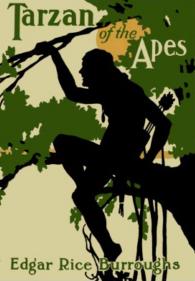
Tarzan of the Apes by Edgar Rice Burroughs (1912)
That was pretty good. A nice descriptive style at least to start with, it might have continued throughout but i just remember being surprised at the start.
The first half has some really nice action. The Jane character is handled fairly well, quite psycological at times and some nice sexual tension.
Yet for all that i still didn't rate it as high as The Cave Girl not sure why, maybe its just a surprise thing, and Burroughs is now a bit too familiar. Although this story is also certainly not without its flaws.
There's some pretty pointless comic relief thrown in the later sections, which feels particularly annoying when one of those characters turns out to be kind of a villain, unintentionally. Its Jar-Jar all over again. Also some of the social aspects later in the book seem more 1812 england as opposed to 1912 american.
There is some choppy editing too, and a bunch of side stories that you have to wade through to explain why various people have suddenly turned up. There must be better ways to introduce people than they show up and then spend 20 pages explaining their presence in pointless flashback.
But i think the main issue might be Supermansyndrome, by about half-way Tarzan has been made so powerful and unstoppable its just really hard to keep any tension in the story.
Possibly one of the more intelligently written of Burrough's tales but not the most fun. Also its best to think of the apes in this as being descendants of ones from those new Planet of the Apes remakes having been transported back in time, because they are pretty much exactly as intelligent as those guys . [3/5]
. [3/5]
The City of Frozen Fire by Vaughan Wilkins (1951)
A 'Treasure Island' ripoff, but instead of an island we land in a lost medieval settlement in south america. A fairly fun adventure story with pirates before the girl from 'Brave' shows up, but she's Welsh not Scottish.
Moments of humour, moments of surprising darkness but overall just a fun adventure story. Its set in 1826 but unfortunately from a social view feels like it was written then, rather than 1950.
While women fair moderately well, the book insists pointlessly on showing that the medieval europeans enslaved the local south americans and never suggests this as anything but a positive. The poor are shown to be little above the slaves and while it very occasionally makes a jab against the romanticizing of medieval life, its nowhere near as acerbic as the likes of a Connecticut Yankee. The overall attitude very much pro-white and pro-rich.
On a sidenote i think the Long-John Silver-esque character is gay, just a thought but it added a little extra.
I probably should deduct a star due to its racism but it has likable characters and is i think still worth a 3, just. [3/5]
Song Items:
Sympathy for the Devil by the Rolling Stones (1968) [4/5]
When They Sound the Last All Clear by Vera Lynn (1941) [4/5]:format(jpeg):mode_rgb():quality(40)/discogs-images/R-3704346-1341049828-5675.jpeg.jpg)
Immortal Love by Eddie Enrico & his Hawaiian Hotshots (2012)
Written and sung by Alan Moore. [4/5]
Home With You by Eddie Enrico & his Hawaiian Hotshots (2012)
Written and sung by Alan Moore. [4/5]0 -
Advertisement
-
New Items:

Amadis of Gaul by Vasco de Lobeira (1508)
A classic tale of knights, damsels and eh... knights and damsels :P . I was going to compare this to a soap until i realised it is, but a very particular kind of soap opera, namely WWE . You see god decides all combats in this universe so the good guy is always guaranteed to win, only magic or traps capable of overruling god. At least on the page, between the pages good knights get beaten all the time, constantly having to be rescued from dungeons or avenged but if it happens on the page you always know who the winner is, apparently god only works with an audience :P .
. You see god decides all combats in this universe so the good guy is always guaranteed to win, only magic or traps capable of overruling god. At least on the page, between the pages good knights get beaten all the time, constantly having to be rescued from dungeons or avenged but if it happens on the page you always know who the winner is, apparently god only works with an audience :P .
Also the combats themselves arn't all that well told, i miss the rhyming. The poetic epics have surprisingly better action sequences, 'Song of Roland', 'Idylls of the King', 'The Faerie Queene' and 'Orlando Furioso' i would all rate higher than this both in action and story. However its still entertaining and with enough variety to keep me interested.
There arn't any kick ass females like in some of the other works i've mentioned but there are a couple i liked, a good female sorceror which makes a change and my favourite the 'Damsel of Denmark' who's almost like an intelligence officer, constantly moving about delivering messages, sorting out problems and gathering intel.
The main characters Amadis and his lady seem a lot like the film version of Aragorn and Arwen. Except Aragorn doesn't burst into tears as much as Amadis (Note, i say film version its not quite the same in the book with Aragorn mostly based on 'Sigurd the Volsung', aka 'Siegfried' from Wagner's ring cycle).
(Note, i say film version its not quite the same in the book with Aragorn mostly based on 'Sigurd the Volsung', aka 'Siegfried' from Wagner's ring cycle).
I preferred his brother Galour who is sneaky when he needs to be and is definitely not a one woman guy unlike weepy Amadis. There are a lot of characters and i couldn't always remember who was related to whom, like other soaps it gets very complicated. Amadis for example has a brother, a foster brother, a half-brother and a female cousin he sometimes calls his sister.
Finally the entire 4th volume, is one long battle and an almost as long ending, its very 'Return of the King' film version, just keeps going :lol .
Still, i really expected to deduct a star from this for length versus entertainment but it actually managed to hold my interest better than expected. Not as good as the poetic epics but decent as long as you don't mind WWE style fight rules .
.
There's a fairly good Librivox version, it uses multiple readers and while most are fine to good occasionally a difficult to parse accent will turn up, but i still found it useful to supplement my reading. [3/5]
Classic Tales of Rupert by Alfred Bestall (1960)
Firstly there are only two stories in this book so while technically correct calling this 'tales' plural, still feels a bit underhanded .
.
Anyway, this is one story from the 50's and one from the 60's. Based on these rupert is a lot more fantastical and weird than i expected . It also uses a strange combination of picture, rhyme and text. They're good but a little bit longer than they need to be. [3/5]
. It also uses a strange combination of picture, rhyme and text. They're good but a little bit longer than they need to be. [3/5]
Facts in the Case of M.Valdemar by Edgar Allan Poe (1845)
Short and somewhat atmospheric tale about hypnotism. [3/5]
Film Items:

Rosemary's Baby (1968)
Good ending and some cool dream sequences but way longer and more tedious than it needed to be. [2/5]
The Rutles, All You Need is Cash (1978)
Mocumentary of the Beatles. Really good until about half-way when you realise they don't have enough ideas and jokes to keep things interesting. [3/5]0 -
New Items:

Oliver Twist by Charles Dickens (1838)
A literary if not literal train wreck.
So i thought i might have problems with this story due to its length, darkness or ubiquity, while not having ever watched a version i still knew the basic plot through cultural osmosis. However i was quite wrong and none of these aspects were problematic, but there were problems.
So this tale is done from a narrator point-of-view, who keeps the story at a distance aswell as undercutting the darker elements with sarcasm and wit. Which is good, because the descriptions of the poorhouse in this could be compared to Auschwitz without any hyperbole.
This is all going splendidly, compelling, funny, moving, easy reading style, nice short chapters. I burned through 30 out of 53 chapters with ease and then... splat!
We get to an event which seems quite similar to something that happened earlier, so already a bit repetitive, but thats not the worst of it. We get this intermission of about 6-7 chapters mostly consisting of walking around in gardens looking at flowers. We also get an entire new cast of characters with their own subplots... we're THIRTY chapters in and it starts introducing all these new people.
But finally it looks like we're getting back to Oliver, i think he gets a couple of lines and thats it... he disappears for almost the next 25 chapters.
You have this almost completed different detective story thing going on instead, its insane. Oh and as for the mystery, wow , twice it does the 'i will now confront the criminal and state to the audience all the facts and who's guilty' cliche and both times it is just awful. Not least of which because half of the facts are completely new to the audience and have never been introduced in the book before this. Thats also putting aside the ridiculous coincidences and Deux Ex Machina's that would make Edgar Rice Burroughs blush :P .
, twice it does the 'i will now confront the criminal and state to the audience all the facts and who's guilty' cliche and both times it is just awful. Not least of which because half of the facts are completely new to the audience and have never been introduced in the book before this. Thats also putting aside the ridiculous coincidences and Deux Ex Machina's that would make Edgar Rice Burroughs blush :P .
Think of two nice looking trains, both have some really nice stuff in their carriages but that does not mean that its going to be a pretty picture when they meet in a head on collision . [2/5]
. [2/5]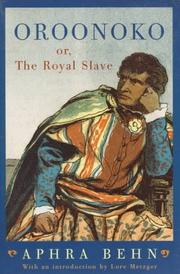
Oroonoko by Aphra Behn (1688)
So its kind of like 'Amistad' mixed with 'Braveheart' . Short tale of an african prince who finds himself on a slave plantation. Reminded me of a shakespearean tragedy at times too. Has the feel of non-fiction in parts, those odd inconsistencies which tend to denote real events.
. Short tale of an african prince who finds himself on a slave plantation. Reminded me of a shakespearean tragedy at times too. Has the feel of non-fiction in parts, those odd inconsistencies which tend to denote real events.
Its narrative structure is unusual in that about half is from the title characters point of view and the rest from the authors.
While i thought it was fine until about half-way i was still expecting to give it 2 stars but it finishes strongly. [3/5]
Hobson's Choice by Harold Brighouse (1915)
A comedy play about 3 daughters who do all the work and their overbearing father who does all the drinking.
This is a pretty solid social comedy, the jokes reminded me of the humour of 'Till Death Do Us Part' or 'All in the Family' if your american. The ending might seem a bit harsh to some of the characters but this is a tough time to live in and 'being nice' is a relative term anyway.
So an easy 3-stars when watched/read in a void... however!
Its also clearly a reimagining of King Lear, and on that basis i gave it an extra star. Personally i always thought Lear himself a bit of an ass and was rooting for the evil daughters most of the time :P . The writer of this play seems of a similar opinion.
I also love the differences shown here between the qualities of a good daughter in shakespears time and a good daughter in 1915. There's a lot you can examine in what the playwright chooses to leave and change between the two works.
I should note nobody else seems to be reading it as King Lear 2.0, so maybe its just me . [4/5] 0
. [4/5] 0 -
New Items:

London, City of Disappearances by Iain Sinclair (2006)
A low 4 stars but still a 4. So Sinclair called up every writer he knows, gave them the subjects 'London' and 'Disappearance' and asked them to send him something.
So this isn't some organized decisive breakdown of london through the ages its a random collection of personal anecdotes, biography, history, poem, short story, essay and other odds and ends. I doubt more than a couple of pieces were written specifically for this collection.
The mix of writing styles is quite cool, although your bound to find one or two you can't stand.
Also if i was an english teacher grading these assignments a lot of people would be getting F's as many have very tenuous connections to the word 'Disappearance' :P.
There is a lot to like here. Literally a LOT, this thing is really long. I have an ebook but a hardcopy might be better, its the sort of book you leave lying around and randomly open and read.
But i do have some gripes, both to do with Sinclair's editing. He's made two attempts to add some sort of structure to this mess.
First he's corralled the pieces into various groupings based on their geographic location in London, not the worst idea. However in effect this has led to a very uneven reading experience as some groups are heavy on fact or fiction, history or biography, long entries or short ones etc.
The other attempt at structure is a piece of ligament called the 'Gazetteer of Disappearances and Deletions' a recurring piece that appears in each grouping. Having some sort of repeating section sounds good. This is made up of short entries mostly by either Sarah Wise, who does what seems to be well researched historical bits or Michael Moorcock who does bull****.
You see Moorcocks entries here are all fiction but presented as fact. Now this might make sense to Sinclair, 'oh look at the thin line between fact and fiction'. But for me this felt insulting to the reader, insulting to Sarah Wise, insulting to history and even insulting to Moorcock. Especially since these entries are not just fictional but are references to other Moorcock stories, making him seem like an underhanded self promoter.
Anyway that was my biggest problem, apart from that its interesting stuff. I mean most of the best parts are biographical or historical and with that sort of stuff its not going to blow your mind or anything best you can say is 'oh that was very interesting' :lol . [4/5]
Burbank with a Baedeker: Bleistein with a Cigar by T.S. Eliot (1920)
Poem about a guy on a venice canal or something. Just as vague and hard to grasp as most poems i hate. [2/5]
To T.S. Eliot by Emanuel Litvinoff (1951)
Poem which is clearly an FU to Eliot. Now that i can get behind . [4/5]
. [4/5]
There Will Come Soft Rains by Ray Bradbury (1950)
Really nice little apocalyptic tale. [4/5]
An Express of the Future by Michel Verne (1895)
Short science dream about a pneumatic tube train. [3/5]
Film Items:


2 episodes of Twin Peaks (1990)
Some of the worst acting and dialogue ever seen on film and yet somehow compelling. [4/5]
2 episodes of The Prisoner (1967)
Interesting concept but doesn't feel like a sustainable idea for a long show run. Also somewhat undermined by the special effects. [3/5]
2 episodes of The Man from U.N.C.L.E. (1964)
Very Bond with the usual 60's sex or is that sexism? [3/5]0 -
New Items:

Melmoth the Wanderer by Charles Maturin (1820)
"..starting from the doze in which he had frequently indulged during this long narrative.
'But hear the result' said the pertinacious narrator."
Well i can certainly see why people might have issues with this book but there's lot of good with the bad. The main plot actually takes up about the first 10%, the 45-60% area and the last 10%. The rest are various other tales which are very tenuously connected.
It opens in ireland and is both very Gothic and very funny, in fact Maturin's sense of humour makes sporadic and odd appearances throughout the book.
After the opening and a short tale to add some more atmosphere we jump into 'The Spaniards' story and this is the low point and longest point of the whole thing. Those two appellations are probably not coincidental .
.
Its a man-vs-institution story and whether its a monastery/convent, mad house, prison, boarding school, police state etc these tales don't have lot of variety to them at least in the broad strokes.
However Maturin is very good at psychology and emotional reactions. Unfortunately this tale is severely undermined by 2 factors. One is that its told by the Spaniard himself, rather eliminating the sense of danger since we know he at least survived, and two its placement.
We know its part of a larger whole and so it takes great focus to stop the 'are we there yet' voice in your head which is waiting for this to intersect the overarching storyline.
The middle section of the book is part of the main plot as i mentioned earlier and this is also one of the most floridly written segments its really good. Then we have two more tales almost back to back.
The 'Gusmans' is a social collapse tale somewhat like Zola's 'the Dram Shop' and 'Elinors' tale or whatever that one was called, is a Gothic romance.
Both of these latter stories are at least a lot shorter than the 'Spaniards' but you might still need to be able to stay in the moment to enjoy them.
Before we finally get back to the main plot for the finish.
Maturins best elements as a writer are his realistic psychology as mentioned before and also his speeches, there are some great speeches by various characters in this. So powerful in fact that Maturin felt the need to add a special disclaimer to say that the opinions expressed by his evil characters where not those of the author .
.
As you can tell it can get very nested, in fact it goes total 'Inception' at times, at one point we have the irish guy listening to the spaniard tell of a story, in which a man is listening to a story about a woman listening to story... how many levels is that :lol . Just hold tight to your totem and lets hope you don't end up in Limbo .
.
I heard once that this was virtually unreadable, glad to say i can disagree. A lot of good parts if not perhaps a great whole. [3/5]
The Swing in the Summerhouse by Jane Langton (1967)
Really very unexpectedly good. I wanted to read the first in the series, especially since its blurb makes it sound like Jumanji , but this was the only one i could find.
, but this was the only one i could find.
Its very much in the vain of E.Nesbit's stories but with some of the surreal darkness of Mary Poppins. However it still stands out as its own thing. Its quite tied to its time and place but that just gives a unique flavour in my opinion.
There are trade off's with the writers style. Its a short and punchy book but that can also mean the characters arn't quite as well developed as some might like, although they still have more personality than many similar characters. Its also very subtle in its lessons but its subtlety might come across as vagueness to others.
The only real issue is a structural one, an element of urgency is introduced but the author isn't ready to deal with it yet so the characters just sort of ignore it.. making them look either foolish or sociopathic depending on your stance :P . Anyway that isn't enough to ruin the story.
Been quite a while since i liked a children's book this much, really nice tone and feel of story. [4/5]0 -
New Items:

Stranger in a Strange Land by Robert A.Heinlein (1961)
"..affect him, if possible with pity and terror . . . or, if not, at least to divert the tedium of his hours with a chuckle or an odd idea."
I grok it but that doesn't mean i have to like it. So this started off as sci-fi, wanders into political satire, with that quick witty (somewhat sexist) dialogue of a Noir, before meandering towards a superhero story with utopian leanings.
I would never recommend this to anyone with an interest in sci-fi. Heinlein has the remarkable ability to take interesting sci-fi concepts and suck the fun out of them. His flying cars and aliens just arn't all that important to the story. Think of it like the 'Futurama' cartoon, science fiction is the aesthetic rather than the content, if you see what i mean. He paints in sci-fi but the picture becomes something else.
Anyway the writing here is pedestrian but not awful and the story is interesting but not exciting. My main physical complaint is that so many chapters involve people just sitting around talking. The conversations being fairly inane discussions of the human condition and taboos. The characters arn't too bad, you may notice some similarities between this and the film 'Charlie Wilson's War' .
.
However this is far more a case of personal taste than professional criticism. I didn't hate it, it did divert the 'tedium of some hours' but i may be removing the other two Heinlein books i had on my to-do list. [3/5]
The Little Prince by Antoine de Saint-Exupéry (1943)
Very reminiscent of 'Everyone's a Aliebn' but not as good. A delightfully melancholy tale. I wouldn't think twice about giving 'Everyone's an Aliebn' to a child but i would hesitate with this.
It just so allegorical and satirical i'm really not sure how much they would get. Pretty good for adults though, it becomes a little too 'Gulliver's Travels' in the middle section and those parts arn't that great but very good start and end. [4/5]
The Duchess of Wiltshire's Diamonds by Guy Newell Boothby (1897)
Short detective tale from the criminals point of view, kind of like Raffles. [3/5]0 -
New Items:

Harry Potter and the Sorcerer's Stone by J.K.Rowling (1997)
Not in the mood for a long review so short version. I wanted to hate it but its actually pretty solid. Takes a lot of inspiration from Tolkien, Dahl and Dickens but is its own thing. Can feel a little episodic at times and author isn't able to come up with enough reasons why the kids don't talk to an adult instead of doing things themselves. But overall its a fairly good and easy read. End of review, now on to the interesting part .
.
I was shocked when i realised what this is. The premise is actually an allegory reimagining white, old money privilege as magic. Its kind of amazing in a horrifying sort of way. Essentially the word muggle is this worlds version of the word pleb and the author uses it with gusto to abuse the non-privileged class even when there are characters from that class around like Hermione. I don't know if Rowling comes from money but it certainly seems like she wants to.
You'll notice there are never any references to what wizards do for a living or what use a Hogwarts education is, because the people who go to these sorts of schools don't actually need to work for a living.
The only reason given for why magic is covered up is that the commoners will all want handouts from the privileged class if they learn how privileged they are.
“Well, their main job is to keep it from the Muggles that there’s still witches an’ wizards up an’ down the country.”
“Why?”
“Why? Blimey, Harry, everyone’d be wantin’ magic solutions to their problems.
It doesn't help that this book is whiter than the private schools its imitating, and in this case that feels like a feature not a bug. Lets not even get into the goblin bankers, i'm surprised she didn't cut out the pretense entirely and call one of them Fagan.
Anyway i am now more interested in reading 'Atlas Shrugged' as i seriously want to compare the two . [4/5]
. [4/5]
Dr. Ox's Experiment by Jules Verne (1872)
Short humorous supervillain tale. Not much more to it than the concept but at least its light and funny. Similar to films like 'Impulse (1984)' or the 'Crazies' but not as extreme.
You know Verne has a lot of supervillains, in his books, apart from 'Dr. Ox' and 'Nemo' we also have 'Robur the Conqueror', and others in 'The Castle of the Carpathians', 'The Begum's Fortune', 'The Underground City' and 'Around the World in Eighty Days'... ok i can't prove that Phileas Fogg is a supervillian but he does have the personality of one (White Rose from Mr.Robot springs to mind) and nobody did find out where his money comes from :P . [3/5]0 -
New Items:

One Hundred Years of Solitude by Gabriel García Márquez (1967)
"Father Nicanor brought a checker set...Jose Arcadio Buendfa would not accept, because according to him he could never understand the sense of a contest in which the two adversaries have agreed upon the rules."
Kind of like Faulkner meets Angela Carter with perhaps some Emile Zola too. History of a Latin-americanish town and told through the eyes of one of its founding families. Magical realism.
A reluctant 4-stars, it sort of wore me down, nuggied me into admitting its good and giving it the extra star. I prefer a more purple prose style and i thought the tone was a little monotonous but both of these seem to improve in the latter half.
Its a lot, it feels really long or perhaps full would be a better description. I got bored quite a few times but everytime i thought it was running out of ideas it would draw me back in. Humourous, magical, confusing, sordid and disturbing. [4/5]
Tibetan Tale of Love and Magic by Alexandra David-Neel (1938)
So first DON'T read the Foreword, it spoils one of the more interesting elements.
This is a supposedly true story told to the author by one of the protagonists. I've marked it as gothic as it has all the elements of a classic star-crossed lovers gothic romance but with an eastern twist. Mysteries of Udolpho meets Lost Horizon... that is an awful analogy even by my standards but you get the drift :lol.
Its relatively short and for a so called true tale it has a nice writing style. It certainly never goes where you might expect and left a pretty good impression. Even though the author might be slightly more fascinating than the story. [3/5]0 -
New Items:

Wistons by Ellen Melicent Cobden (1902)
Wow! that was quite the flourish at the end. This is a really interesting one with very surprising female characters for the time.. or this time frankly.
It feels something like 'Pride and Prejudice' mixed with 'Wuthering Heights'... sortof, not really.
About the first half or even two-thirds feels like a highlight reel. It skips along giving these little episodes of life on this manor farm. The later sections get more and more detailed as our two heroines grow up.
Both of them are very intelligent and bookish. Anyone who reads a lot will know how hard it is to find others of equal introspection . Its all about trying to find a reason to live, your place in the world, other intelligent life.
. Its all about trying to find a reason to live, your place in the world, other intelligent life.
One of the sisters being very empathetic the other self sufficient almost to the point of sociopathy... but i mean that in a good way :lol.
Just a small example of the oddity of the book is that the women sit on the floor a lot. It might seem a trivial detail but its so odd for women of this period not to care about their dresses and just plop themselves down wherever they want .
.
On the downside it does phonetic accent writing on occasion which few writers can pull off. Also some of the writing might be a bit vague, usually during conversations, on occasion i found myself not quite getting what was being said.
By no means the first writer i've had this issue with. Sometimes your just not quite on the same wavelength so even though all the words make sense the meaning can be obscure.
Still not sure how i feel about the main male protagonist, i might hate him but i'm not quite sure i'm meant to :P. I never expected it to go where it does in the end and the whole thing was a very pleasant surprise. [4/5]
Vineland by Thomas Pynchon (1990)
Right... where to start. My first Pynchon. I was actually tempted to give it four stars but part of that was because it fills you with a healthy amount of paranoia against those in power. There is so much outlandish crap spread around these days that i think we begin to overlook all the real conspiracies and corruption out of some sort of mental backlash.
Anyway... the plot such as it is... you remember that episode of the Simpsons where Homers mother turns up who's been on the run since the sixties? Its a bit like that with occasional channel interference from Kill Bill and Godzilla.
About 90% of it is flashback, although they're not so much flashs as bleeds. The transitions from time to time and place to place are quite something as you can never seem to see them until after they've happened.
It can make finding a natural stopping place (their are no chapters) a little hard. You'll be a couple of pages into a new section following new people before you've even figured out that the change happened.
It seems at times stream of consciousness writing with the occasional pool of magical realism. Still not quite sure what a Thanathoid is... i'm thinking ghost zombie nihilist :lol.
Other idiosyncrasies of the author are the various songs thrown in and dream sequences the latter being completely pointless and the former not meaning much to me but perhaps more interesting for those of a musical inclination. About 20% of the book feels like it could have been cut without in anyway effecting the story, and i'm probably being generous with what i consider to be relevant.
There are also two major mysteries in the book, one of why the badguy is doing what he's doing and one about why another character did what she did in the past. Neither of which are really resolved but given the nature of the story i suspected there would be no easy answers so i wasn't too annoyed by that. Also given the type of story i expected it to end with a whimper rather than a bang and was correct on that too, although fadeout instead of whimper might be more accurate.
I like stream of conciousness, 60's-80's america etc. there was a lot i liked here but perhaps too chaotic to love. [3/5]
The Shy Stegosaurus of Cricket Creek by Evelyn Lampman (1955)
A decent enough kids story about attempts to save an inherited dirt farm with the help of a neighbourly talking dinosaur. Not the most cheerful thing in the world and the last part is a bit sudden and flat. Then again i was never the biggest fan of the Hulk tv series or Littlest Hobo. [3/5]0 -
New Items:

Swiss Family Robinson by Johann David Wyss (1812)
Pretty much what you might expect. A mother, father and four sons shipwrecked on what they claim is an island although no one ever bothers to circumnavigate it so we'll never know for sure .
.
Its quite Vernian, in that it spends a lot of time giving mildly interesting and often incorrect information on plants and animals. Usually involving how best to kill them .
.
I did like the unintentional irony. Sometimes the father would get worried at how callous the sons are getting while praising there killing powers the rest of them time. At one point someone asks why god would created something as vicious as a wild cat, he says while holding up the cat which he just killed . There are also some sights you can't unpicture, a small child clubbing penguins to death is the sort of thing that will stay with you.
. There are also some sights you can't unpicture, a small child clubbing penguins to death is the sort of thing that will stay with you.
Anyway there just isn't enough here to separate it from the hundreds of other shipwreck stories so i deducted a star... then i put the star back because of the humour.
There's some genuine warm family teasing here and the parents in particular can be quite sarcastic. However in the end i took the star off once more because of the geography.
Sorry but if you have a hippo, kangaroo and capybara in the same small piece of land something has gone horribly wrong, or your at the zoo :lol . [2/5]
Satan Wants Me by Robert Irwin (1999)
In 1967 a sociology student and acidhead gets involved with a satanic cult. Very much a love letter to the 60's and 60's occultism. If names like Crowley, Wheatley or films like Rosemary's Baby, don't mean anything to you, your probably not going to get the most out of this. Actually maybe some Kerouac, William S.Burroughs etc. wouldn't hurt either.
Some knowledge of 60's music (which i don't have) would also help. This book should really come with a playlist.
The whole thing is done as diary entries which can be a bit limiting. Still, i thought it would be an easy 4 stars, however it starts to come apart around the 3/4 mark. People change personality too abruptly, there's a big information dump at one point and some 'Story of O' type stuff which didn't do anything for me.
However it manages to pull itself together and keep the 4th star, if only just.
I don't think the story takes itself too seriously either, which is a good choice, there's a twinkle in the eye which keeps it from being too, pretentious? for want of a better term.
At times funny, interesting, sexy, disturbing, creepy and vile, but rarely boring. [4/5]
Film Items:

Danger: Diabolik (1968)
Crime thriller done by some of the same people as Barbarella... you can tell. Its fine but not much more. The most interesting thing about it is that one scene seems to have been stolen for the original Point Break film . [3/5]
. [3/5]
Sunset Boulevard (1950)
Some good elements mostly in the small details and turn of plot. The main performance is so over the top it didn't relly work for me. Although its contrast with everyone elses normal acting was kind of interesting. [3/5]0 -
New Items:

The Trials of Persiles and Sigismunda by Miguel de Cervantes (1617)
So this is a love story supposedly, with innumerable sup-plots. Every time a new character shows up we get yet another tangent. Whats odd is that not only do the actual characters get bored with some of the sub-stories but the author apologises to the reader at least ten times about how repetitive it can get.. and then continues on in the same way as before .
.
Most of the plots involve someone being forced into a marriage they don't want. The people who can't take no for an answer being both men and women but mostly men of course. This leads to one of the ironic highlights because the main love tale when you finally learn all the facts isn't exactly Romeo and Juliette thats all i'll say .
.
The main plot starts in the middle and is filled out bit by bit in flashback which is a good technique i felt.
Other items in the plus column are that the sub-plots or episodes in the main plot are all very short. So if you don't like something don't worry it won't be there for long. The story is also quite random or at least unpredictable in its turns, which i generally consider a good thing.
The best thing about the book however is its world building, which bares about as much relation to real history or geography as that of Robert E.Howards stories do .
.
A low 3 stars, its a mess, but enjoyable enough. [3/5]
Now We Are Six by A.A.Milne (1927)
As 1920's poetry collections for children go, this is fairly decent... i kind of thought it was a winnie-the-pooh book but.. whatever.
Technically Pooh is in this but its barely a cameo. I'm not a fan of poetry either, or i guess because this is for kids we may have to call it nursery rhyme? Anyway its.... fine. [3/5]
Polpelly Christmas by Frank Richards (1936), The Magnet issues #1452-1455.
Its good, i was tempted to give it 4 stars at some points. Adventure, humour, secret passages, mystery, danger, racism, the gangs all here :P . For some reason the main badguys keep getting called dagoes, even though they're italian, don't you just hate it when people use the wrong racial epitaph .
.
Bunter does his best Scooby impression blundering in and spoiling enemy plans by accident, but they also manage to get him out of the story for a while which is good as too much Bunter can get pretty annoying.
Some decent characterization of the other characters too. In fact one of them goes dark, like Nolan's batman dark... but luckily avoids Snyder's batman dark.. nobody needs that .
.
Its a bit episodic which would make sense, issue to issue but here it happens chapter to chapter even though the chapters are published together. Not much point in a cliffhanger when the continuation is literally right next to it.
Glad i read the original magazines as one of them included the delightful (this is sarcasm) section, the 'Greyfriars N*GG*R Review' (it gets worse) which is a set of instructions on how kids can perform their own Black and White Minstrel show for christmas, fun for the whole family (not) :lol . [3/5]
Film Item: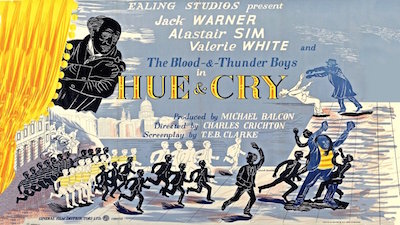
Hue and Cry (1947)
Pretty good kids vs criminals adventure. Let down by a couple of bad edits and lack of a reward scene at the end. [3/5]0 -
Advertisement
-
New Items:

The Purple Cloud by M.P.Shiel (1901)
"...savagery civilised in its top-story only: for civilization was apparently from the head downwards, and never once grew below the neck..."
So the author is a monster but on the upside so are his characters (and he's been dead for 70 years, bonus).
Apocalyptic fiction. The psychology of it reminded me a lot of Robinson Crusoe. Oh yeah in case you havn't read that, Crusoe is pretty deranged... but the poster child for sanity compared to this protagonist. Who i would describe as a paranoid schizophrenic pyromaniac with delusions of grandeur .
.
I've read two other works by this author but don't recall either of them being this hard to parse. Some quite difficult to decipher sentences at times, heres an example, if you hate comma's look away now :
:
"I leaned and loitered a long time on the bridge, gazing up to the craggy height, which is heavy with a waving wood, and crowned by the Castle-tower, the Tees sweeping round the mountain-base, smooth here and sunlit, but a mile down, where i wished to go, but would not, brawling bedraggled and lacerated, like a sweet strumpet, all shallow among rocks under reaches of shadow - the shadow of Rokeby Woods."
What does the last part of that even mean, did that cliff murder a hooker? :lol .
Its about 15-20% longer than it needs to be. There are also some very dry spots usually when the author is describing things and the ending while probably very meaningful on a personal level does feel fairly pointless in the grand scheme of things. So some may feel it to be anti-climactic.
Its also very religious which i say as a neutral statement, its this really odd mix of old victorian ideas and newer 20th century science. Overall a bizarre and highly interesting bit of fiction with a unique anti-hero.
Plus an interesting representative of the clash of new and old ideas from the turn of the century when it was written.
Also if it makes you feel better about reading something by this author at least he did time, thats more than has happened to most of our monster contemporary or historical. [4/5]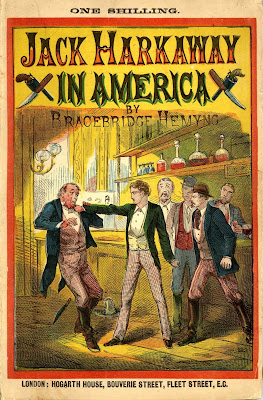
Jack Harkaway in New York by Bracebridge Hemyng (1879)
Incredibly cliche and yet still compelling at times. You have our perfect hero, great at everything, the love interest and the rival. An the evil english lord with his even more evil foreign servant. Also a couple of comedy relief chapters and various silly coincidences.
Yet i still nearly gave it 3 stars, mostly due to its unusual structure. It actually tells the story from multiple points of view and we even get a fair bit of time with the villains.
Its also a very easy read, the 19th century equivalent to airport literature. [2/5]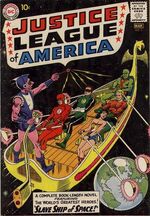 ____
____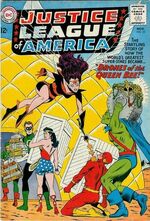
Justice League of America #03 (1961) [3/5]
Justice League of America #23 (1963) [3/5]
Two fairly similar comics. Both find decent ways to use the heros powers but no one has anything in the way of a personality.
Film Item: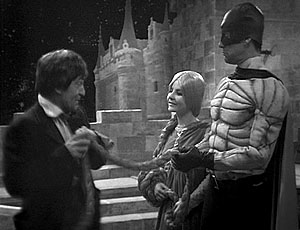
Doctor Who, The Mind Robber (1968)
5 episode storyline. Really good tale, nice and weird. Little bit confused at the end but stands up remarkably well overall. [4/5]0 -
New Items:
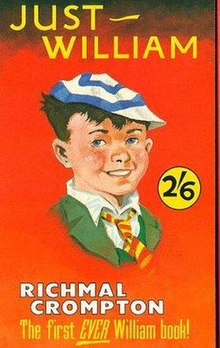
Just Willam by Richmal Crompton (1922)
First off in the version i read there seemed to be a chapter out of order, i would read the chapter titled 'Jumble' after 'The Show' for maximum making sense .
.
There's nothing new under the sun. In terms of old english characters while Billy Bunter is distinctly Eric Cartman, William Brown is very much Bart Simpson, (maybe a a tiny bit less evil though).
Its episodic fare nothing in the way of overarching story but the humour really doesn't age, its good stuff. Not much else to say really, a little bit more personality for his brother and sister might have been nice but otherwise just solid ageless annoying child tales. [4/5]
The First Settlement of the Cessares by James Burgh (1764)
Straight forward utopian plan, not a lot in the way of story. Despite the name this is about a dutch colony hidden in south america.
Presented through a series of letters which describe the laws, history etc. of the colony. Its a purely puritan/omish system, cromwell would be proud, the main town is even called Salem.
Its main utopian idea is that everyone gets an equal sized piece of land (with some variation depending on soil quality). There doesn't seem to be any trade, each family live off their own land.
While its ideology is extreme it is at least not too hypocritical. The author uses a lot of references to backup his ideas and also takes potshots, at wars, slavery, the genocide of the south americans by the spainish, the distribution of alcohol to the native americans etc.
Slighty more interesting than More's 'Utopia', Bacon's 'The New Atlantis' or 'The Commonwealth of Oceana' at least. [2/5]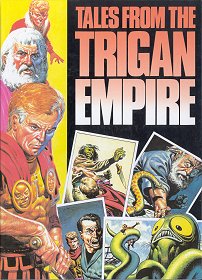
Victory for the Trigans (1965)
Compiled from 19 issues of The Ranger comic. History tale of romanish aliens but with jetpacks and rayguns. Its fine but some logic issues, and a bit too allegorical for my taste. [3/5]0 -
New Items:
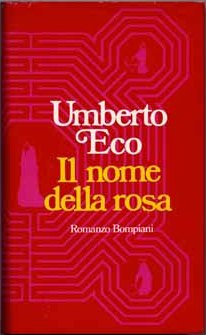
The Name of the Rose by Umberto Eco (1980)
I still prefer 'Island of the Day Before' despite giving it a lower score . Eco's writing here is beautiful albeit prolix. He likes to show his work, so if he's discovered some name or item it will be listed, even if it takes him half a page
. Eco's writing here is beautiful albeit prolix. He likes to show his work, so if he's discovered some name or item it will be listed, even if it takes him half a page  .
.
Also there's quite a bit of untranslated Latin which was just annoying.
I'm really not a fan of detective novels and Sherlock Holmes in particular, and this is very much a Holmes story... if he lived in the middle-ages.. and used to be an inquisitor :P .
However there is also a lot of politic and historical backdrop which makes the tale more compelling than a standard murder mystery.
You'll probably find it hard to follow all the politics and various factions but that is actually part of plot, with most of the characters finding it hard to figure out which side people are on and who believes what.
Eco is a master at capturing the medieval mind, and how they viewed things differently from today. Even our main detective who has a pretty advance viewpoint in general is still limited in some of his views by the times.
Its just a very solid story with well crafted characters a good 4 stars throughout... except for the ending, thats where it got the extra star.
When the final mystery is revealed it almost feels like a let down.. until you get the explanation... which is so interesting, so apt for the world today and just really left me pondering heavily . [5/5]
. [5/5]
The Adventures of King Pausole by Pierre Louÿs (1901)
My score on this one has not been effected by any moral judgments. If it was it would be about minus 20 stars . But i'm just going to put aside the questionable age of some of the characters and the authors complete certainty that women always mean Yes when they say No. It is or at last claims to be humour and if this was written by Rabelais in the 17th century i might be looking at it differently but 1901 is a bit too late to be this primitive.
. But i'm just going to put aside the questionable age of some of the characters and the authors complete certainty that women always mean Yes when they say No. It is or at last claims to be humour and if this was written by Rabelais in the 17th century i might be looking at it differently but 1901 is a bit too late to be this primitive.
This is a philosophical sexual comedy about a small kingdom where the only law is don't hurt anyone, apart from that you can do what you like especially when it comes to sex. Oh except for the royal family of course, where the king imposes his own set of rules, because this book can be quite realistic at times .
.
Despite its caveman ethics in places, its also quite advanced in others, there are gay characters and its belief in sexual freedoms is quite modern.
Its also genuinely funny at times. Its also quite confused, contradictory and meandering. An interesting satire on sexual ethics and very bold for the time period but no classic.
Of note i own 'The Bumper B3ta Book of Sick Jokes, so bad non-pc humour is fine by me, however in this case it kept catching me off guard and you could never be sure how much of a joke was intended. [3/5]0 -
New Items:
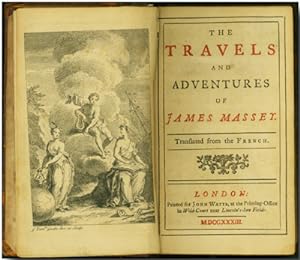
The Adventures of James Massey by Simon Tyssot De Patot (1710)
A fairly dry travel story with the usual assortment of shipwrecks, savages, slavery etc. The middle third is set in a lost kingdom which i guess you could call utopian but its little different from the real world.
Perhaps a little more orderly but only in the way ancient china could be considered orderly. They still have bloodsports, multiple wives and a king. But no deathpenalty, just hard labour for life... is that supposed to be better? , they also don't pray or believe in an afterlife although they do worship.
The adventure elements are interrupted by frequent scientific and religious discussions, on why we have calendars, gravity, how we know the sun is big and that the earth revolves not the stars etc. Some of the physics stuff is quite hard to follow in 18th century language... although i might have a hard time with it even in modern speech .
.
The main elements of the book however definitely seems to be the religious arguments. The author not wanting to be burned alive, has the protagonist usually take up a very pro religious stance defending even the stuff which contradicts all the other stuff.
However he then has other characters use logic and reason to attack dogmas and religious minutiae.
The whole thing is an odd assortment of bits and pieces but it held my attention well enough. [3/5]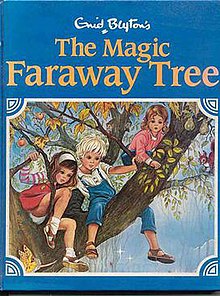
The Magic Faraway Tree by Enid Blyton (1943)
At least i didn't want to chew my arms off from boredom like the "Wishing Chair" stories.
I maintain that Blyton is by every measure a terrible writer. She has a decent amount of imagination but its mostly of the 'Alice in Wonderland' variety, ie only interesting because its so random.
I suspect a lot of the joy people find in her books is due to her psycological attacks on the reader. The characters and narrator are constantly telling you how 'exciting', 'delightful' or 'fun' the adventures are. I guess if you tell people something often enough they will start to believe it .
.
Anyway i didn't hate this it was fun enough for what it was. Its the childrens book equivalent of a slocky B-Movie and i have been watching a lot of MST3K lately, so who am i to judge . [3/5]
. [3/5]
The Jungle Book: Mowgli's Story by Rudyard Kipling (1894)
I was reading the illustrated Jungle Book available on gutenberg but gave up when i got to the end of the Mowgli stories.
Its fine, pretty much what you might expect. Its knockoff Tarzan is actually much better despite Burroughs inferior writing abilities. [3/5]0 -
New Items:
Black Mischief by Evelyn Waugh (1932)
'...constitutional monarchy, bicameral legislature, proportional representation, women's suffrage, independent judicature, freedom of the press, referendums...
What is all that? asked the Emperor.
Just a few ideas that have ceased to be modern.'
That was fairly fun. A satire about a small nation of complicated culture and history, with a new leader who wants to reaplace the savagery of barbarism with the savagery of civilization..
I tend to quite like these small country political stories and have read quite a few but this stuff tends to be a backdrop to the main plot.
These elements arn't used here as the setting for the magical realism of 'One Hundred Years of Solitude', or the hippie utopianism of huxley's 'Island', nor the personal dramas of 'South Wind' or 'Palace Without Chairs'.
There isn't really even anything you could call main characters. It reads at times more like a moviescript than a novel. There is no greater plot, its just this sketch of the life of the island through the eyes of various random elements.
Nevertheless its well drawn and quite funny and easy to read. Also occasionally quite dark at times especially near the end.
Oh, its also quite un-PC, but not in an aggressive way... although i am an extremely white male so your feelings may vary .
.
Overall a nicely drawn albeit somewhat shallow satire. [3/5]
Lady Pokingham by Anonymous (1880)
'...evidenced by the large bunch of keys you always seem to have in your pocket..'
While not as funny as i had hoped given the opening, that was actually much better than expected. Of course my expectations were rock bottom but still .
.
The story is told from the point of view of a woman dying from TB at the tender age of 23, which setup tends to mitigate the harsher elements of the story somewhat.
It tries to keep up the variety and avoid being repetitive. Covering pretty much the entire sexual rainbow, and since this is victorian there is the usual spanking fetish but not as prevalent here as some other works.
There's also a few story elements such as secret societies but the plot is minimal. Overall enjoyed it or perhaps more accurately, tolerated it quite well.
Sidebar, the victorians were also a little more advanced than i expected
'The godemiches.. made of the finest vulcanized india rubber.. we strapped them on as soon as they were charged with a creamy compound of gelatine and milk.' [3/5]
Paul Bunyan tales (1916)
In these short folk tales Paul is basically the Chuck Norris of his day . [3/5] 0
. [3/5] 0 -
New Items:

When the World Shook by H.Rider Haggard (1919)
'..think not that you Westerners have done with wars.. and what the sword spares class shall snatch from class in the struggle for supremacy and ease.'
Quite a lot of good moments in this sci-fi adventure story. Also probably one of Haggards smoothest reads. I imagine he had a few more passes on the draft than he usually does.
Most of the good elements are character driven. The plot moves slowly and is not helped by all the foreshadowing. Its pretty obvious where things are going even if you havn't read any other Haggard stories. If you have read some of his other books however then a lot of this will feel very familiar.
Given its publishing in 1919 you might expect some influence from the war but despite the storyline lending itself well to that Haggard seems to almost resent having to acknowledge the conflict. The story is also quite religious, in fact the most religious adventure story i've read since 'Ardistan and Djinnistan'.
Its almost a perfect representation of its time period. A bit more advanced than the victorian novels but oddly old fashioned for a modern work. Although i've said its slow, the downtime for want of a better term, is not without its charm mostly due to the personalities of its characters. Theres a fair bit of humour here. [3/5]
Hound of the Baskervilles by Arthur Conan Doyle (1902)
Yeah its pretty good, there were times when it was 4 stars but dropped a bit in the latter stages.
I thought i'd like this better than the short Holmes stories as a lot of those tend to lack much characterization. It started off strong but when your 2/3's of the way through you realise not much has really happened. I mean until near the end the only proof of a crime is the fact that this is a detective story :P .
It doesn't help that the characters keep telling you that they're facing some sort of supercriminal. This isn't Moriarty or 'Fantômas' or something. Also its hard not to guess a few of the details due to the cultural absorption of the tale.
Listened to an excellent reading by 'David Clarke' on LibriVox. [3/5]0 -
New Items:
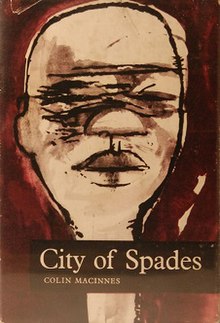
City of Spades by Colin Macinnes (1957)
That was fairly good. It starts off well, told from the point of view of two main characters, a nigerian student in london for a year of study and a newly appointed colonial welfare officer.
The coloured community of 1950s london is a pretty unique setting. As well as nigerians you have gambians, people from trinidad and other caribbean islands, and a number of americans usually visitors, GIs or showbiz types.
However after the initial setup things become a bit episodic or sporadic might be a better descriptor. With its variety of characters it reminds me a lot of Evelyn Waugh, except not funny, then again i don't usually find his stuff all that funny either :P .
Like Waughs novels, by the end there arn't really any likable characters or over-arcing plot, its more just a series of incidents.
The main nigerian character probably comes off the worst until you remember he's 18, which pretty conclusively explains if not entirely excuses his actions .
.
The book is about race but not really racism. Its surprisingly light on the racism for 1950s but mostly because there are only a few white characters and they're mostly of the very liberal type.
By the end the whole thing just feels a bit slight. Fun and interesting enough but a bit thin. [3/5]
Birds of Paradise by Paul Scott (1962)
"..I've been trying to tell the truth about people as I thought they were and about myself as I thought I was."
Well that was existentially depressing, and not in an awesome way like the 'Tartar Steppe' or something.
Its also really hard work, even the good parts. The author has a very purple verbose style, which i normally like. It works well in describing scenes but a lot of it is simply about thinking. He can spend endless paragraphs analysing why people act the way they do and rarely comes up with an answer or even an interesting question.
A lot of the scenes are half remembered events, and while the inexactness of memories is very realistic and maybe even important to this particular story, that does not make it any less frustrating for the reader.
Its mostly a biography and the early portions in a (i'm guessing) somewhat fictionalised India are pretty good although not as magical as some other india related books i've read.
The 2nd quarter is the worse part, a turgid mess of the characters life until middle-age, it takes real concentration to stop your eyes glazing over.
Finally though we get back to something which lends itself better to the writers overdone style, which are events during and after WWII. These parts are really good, even the psychological analysis parts work well, for the first and last time in the story.
The whole thing finishes with a whimper rather than a bang, which in this case may actually be what the author intended. Only towards the end does it become apparent that the whole tale has been about the pointlessness of life, or most lives.
Hard graft, only recommended for readers who like to really earn their enjoyment of a book . [3/5]
. [3/5]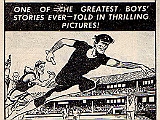
The Truth About Wilson (1964)
Comic version of a character created in 1943. Wilson is a super athlete perfect in every sport, he lives in the woods on nuts and berries. The best aspect of the stories are the occasional hints of something weird about the character. [4/5]0 -
New Items:

Back from the Dead by Chris Petit (1999)
Detective thriller about a rockstar receiving stalker letters. Really good, its a bit weird that the investigation stuff actually tends to come as a relief, because the personal lives of the characters are somehow more disturbing .
.
The author can do a lot with a little, very short chapters. A lot of deadends or things which technically arn't connected to the main mystery but it all adds to the atmosphere and sense of realism, life is never neat .
.
I could never quite settle with this one, everything was just a little off. Changes of character perspective, changes in tone, it kept me constantly offbalance, which while not a pleasant feeling is probably what you would want from something like this .
.
Some knowledge of the Manson murders, the Rosemary's Baby film, and the death of John Lennon might all be useful. [4/5]
The Yawning Heights by Alexander Zinoviev (1976)
"Their aim is to distort judgements and divert public attention to trivia. And this does not merely affect cultural life. It affects every important aspect of life. Have you seen today's Newpaper?"
A massive tome of anti-communist satire with an annoying, perhaps even horrifying, amount of relevance today. I thought it might be smaller on the inside as it had a decent sized font and margins but its actually bigger on the inside.
Made up of small chunks of genuine sociology, little scenes of life and a ton of satire. Most pieces are only a page or two with maybe some extensions to 4 or 5 pages towards the end.
If i arbitrarily divide it in 4, the first quarter is the funniest and lightest. A perfect blend of high and low-brow humour mostly revolving around the building of a latrine.
The second quarter is the hardest, a lot of heavy sociology although most is given a dumbed down explanation or examples aswell.
The third part feels the most personal. It made me wonder who the people behind the satire really were and made me miss the fact that i know so little about soviet russia.
The last quarter is the darkest. Dealing with the most brutal aspects of communism aswell as projecting into a future where the great Ism has taken over the world, hence my putting it on my dystopia shelf.
Having divided it in 4 let me go back and say that those are only the broad outlines and theres a constant intermixing of comic sketches and deep thoughts.
Reminded me of Dilbert :lol, with its incompetent leadership and frustrating bureaucracy in which talent is stifled and stupidity rewarded. Dilbert, if your boss could also have you killed .
.
Its a LOT and really depressing , but i'm still giving it 4 stars, which is worth a lot more than 4 stars spread over 250 pages :P .
, but i'm still giving it 4 stars, which is worth a lot more than 4 stars spread over 250 pages :P .
"What fantasies, what myths define
The dreams that sooth my brow?...
...The scientist who's in control?
...The footballer who scores a goal?
Must we on them rely?
Alas, there is no other choice.
The fairy tale has died,
Their heroes vanished, stilled their voice,
There's nothing left beside." [4/5]
14 issues of Iron Fish (1967)
Good comicstrip adventures usually lasting 2 issues, which is 4 pages. The Iron Fish design is iconic. [4/5]
2 issues of Mr. Apollo (1953)
Super-man knockoff comic. One fairly bland story, the other delightfully absurd. [3/5]
18 issues of the Adventures of Tommy Walls (1953)
Single page comicstrips so this represents two story arcs. An advertising character for Walls icecream. The LoEG claims he's powered by ice-cream, which made him sound like Bananaman or Pop-Eye. However these are typical boys-vs-crooks stories and any goodluck or bright ideas attributed to the ice-cream are specious. [3/5]
1 issue of the Adventures of Mark Tyme (1967)
Comic about inventor and judo black-belt lost in time. Its passable. [3/5]
Film Items: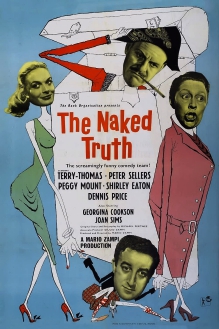


The Naked Truth (1957)
Comedy about a tabloid reporter who blackmails the rich & famous and the various murder plots that ensue. Pretty good, does tend to rush to the finish though. [3/5]
Gorgo (1961)
Grading on a curve here but its pretty good for what it is. A lot of Kaiju cliches although it might be inventing some of them. The special effects are decent for the genre and you get to see a few london landmarks destroyed. [4/5]
2 episodes of Captain Scarlet and the Mysterons (1967)
A bit too grown up for most people who like puppets. But for a niche audience i'm sure it must have been amazing. [4/5]0 -
New Items:
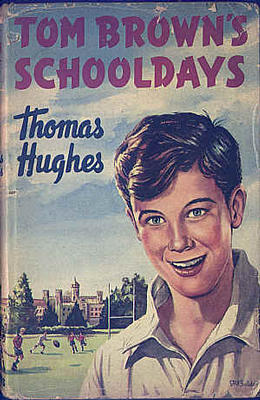
Tom Brown's Schooldays by Thomas Hughes (1857)
This starts well enough, a love letter to old england. Its view of early 1800's schools being pretty unique. The story has a fair bit to say about bullying which i found surprising, when you have in Dickens kids being beaten and starved to death i wouldn't have thought anything as smalltime as bullying would register with the victorians .
.
Some of the slang and other word usage can be a little difficult at times. Our protagonist is also a little too tough to completely sympathize with. You expect someone a little weaker for a coming of age tale like this. The narrator can also be a bit of a problem as you always feel his presence and that adds more distance between reader and characters.
But its still not bad and at the half-way point looks like improving. The introduction of a weaker character seems as if its correcting one of the issues i pointed out.
However thats when it all starts to fall apart. The book devolves into an insipid mess, actually reminded me of 'What Katy Did', not the sort of company any book should want to be in .
.
Its also far too sporadic and makes too many time leaps preventing any potential connection to the characters.
At its best its ok, but for parts of the second half its far from its best.
Listened to some of it on a good Librivox recording. [2/5]
Jack Wright and His Deep Sea Monitor by Noname (1901)
Short dime novel. Very basic writing, trys to make up for it by having virtually every chapter end in a cliffhanger. Also throws in a lot of different elements, savages, technology, pirates, sea monsters, comedy sidekicks, funny accents etc. Very meandering and random though. [3/5]
Scanners Live in Vain by Cordwainer Smith (1950)
Short story with a really nice mix of high-brow and low-brow sci-fi. Very good world building too. [4/5]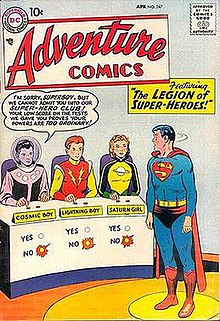

4 issues of Roy of the Rovers (1979)
Pretty well written comicstrip. If you like football drama's, which i don't . [3/5]
. [3/5]
Adventure Comics #247 & #267 (1958)
First appearances of the Legion of Super-Heros. I like it, they're always kind of evil, even though their the good guys. [4/5]
Brave and the Bold #28 (1960)
First appearance of the JLA. Kind of ran out of steam at the end but not bad. [3/5]0 -
Advertisement
-
New Items:

Worrals of the W.A.A.F by W.E.Johns (1941)
Its possible my low expectations have resulted in this high mark but i'm not sure. Its a very solid spy-thriller. With a few touches of women vs male authority. I actually would have preferred if Worrals was a little older as being 18 lends an extra YA element to proceedings too, which was unnecessary.
These kind of spy adventures can be very convoluted and messy like the awful 'Thirty-Nine Steps'. But this one is very solid and logical. Even when things go wrong, its never because of bad decisions, or at least not because of stupid decisions.
Its fast paced and short tale with very likable characters. There is one bit near the end where i felt it introduced too many new elements and we had a bit of an information dump but it did lead to some nice dramatic scenes.
Far better than the one biggles book i read as a kid . [4/5]
. [4/5]
The Wouldbegoods by E.Nesbit (1901)
One of her non-magical tales, a sequel to the 'Treasue Seekers' which i havn't read. The narration was quite confusing at first, apparently in the previous book its explained that the narrator is supposed to be a mystery.
A group of children are sent to the country and decide to try being extra good as they're always getting into trouble. Leading to the kind of chaos you would expect. By the half-way point my inner adult was getting quite annoyed but the author seemed to sense this too and the kids are less destructive in the second half.
Its well written but almost feels like a script at times, like it would work better as a film than it does on the page, bit hard to explain. I alternated between listening on Librivox and reading it and i think it was more designed to be listened too.
The Librivox recording is also done randomly by a man and woman, possibly due to the narrator mystery but it works well. [3/5]
16 issues of Li'l Abner (1941)
Comicstrip, kind of like the Beverly Hillbillies but without the beverly part . [3/5]
. [3/5]
A Voyage to Great Garaband by Henri Michaux (1936)
Short bits of surrealism, probably satirical like Gullivers Travels. Some of it can be interesting but only in the way a Rorshach test is. [2/5]
The Count's Beard by Italo Calvino (1956)
Short folktale with bits of poetry. Sort of humourous with a detective element. [3/5]0 -
New Items:

Mr.Blettsworthy on Rampole Island by H.G.Wells (1928)
"So that so far from Evolution being necessarily a strenuous upward progress.. it might become.. a graceless drift towards a dead end."
This is not the Robinson Crusoe knockoff you might think it is, given some of the cover art and the title.
So the first quarter almost felt like an Ealing comedy and i thought it was going to end up as a spoof of Crusoe. However the second quarter goes existentially and socially depressing like something by Orwell or Kafka.
The third quarter is the only one set on Rampole Island, whose natives reminded me strongly of the ones from Peter Jacksons remake of King Kong . This might also be the weak link in the narrative. Not on its own but in context of the rest of the story i don't think its as visceral or pointed as it needed to be and ends too abruptly perhaps, but its a minor quibble. The final quarter is set during and after WWI.
. This might also be the weak link in the narrative. Not on its own but in context of the rest of the story i don't think its as visceral or pointed as it needed to be and ends too abruptly perhaps, but its a minor quibble. The final quarter is set during and after WWI.
It really does feel like four or five different books in different genres, starring the same protagonist. I don't mean that its a mess, Wells just slides from one genre to another with consummate ease.
Perhaps it wouldn't be quite as surprising if this was written by a different author, someone who came to prominence in the 20's but to see an old hand like Wells write something which feels so on the edge for its time is very fun.
An extremely unvictorian novel taking in the social views, the advancements in social science, and the political views of its era.
Its still a little longer than felt necessary but a lot to like. Recommended for patient readers and stoics . [4/5]
. [4/5]
Mape by Andre Maurois (1926)
So this starts off with a delightful little prelude about a child inventing the imaginary world of Mape... which we never hear about again .
.
The main story then starts, which is divided into 3 parts, subtitled the Writer, the Reader and the Interpreter.
The Writer describes the real events which informed Goethe's 'Sorrow's of Young Werther'. The Reader is about a frenchman who, supposedly inspired by the works of Balzac, gets into a love affair. And the Interpreter is about the life of famous british actress 'Mrs. Siddons'.
The writing is good and its an easy read. While i doubt the accuracy, the biographical and historical details are intriguing and the author paints some nice scenes.
However given the opening.. parable?, metaphor?.. whatever that was, plus the chapter subtitles, this is clearly advertised as an examination of our relationship with fiction and while technically these stories fit, its very clear that the theme was created to tie together these disparate tales, rather than the tales being written on a theme.
Also i was very close to deducting a star during the last story. Putting aside some melodramatic elements which seemed written, not just set, in the 1700s. The narrative clearly sets up the actresses problem with performing Lady Macbeth (which would become her most famous role), however it then wanders completely off the topic, in the same way this whole book wanders off topic, leading to a frustrating conclusion.
What you get is quite enjoyable but the author really needs to stop moving the football. [3/5]
Spring-Heel Jack, the Masked Mystery of the Tower by Thomas Hoyer Monstery (1885)
Short dime novel. Cracking stuff, fainiting, inheritance, mysteries, gypsies, an indian fakir, this one has it all. Does end rather abruptly. [4/5]
The Ivans by Yevgeny Zamyatin (1922)
Short funny tale but if there was a point to it i don't know what it was. [2/5]
first issue of Lord Horror Reverbstorm (2012)
Surreal comic. Not my taste. [2/5]
Film Items:

Dr.Jekyl and Mr.Hyde (1941)
Really good. More 'American Psycho' than other adaptations . I assumed it was going to be a modern reltelling but no, set in 1890's. [4/5]
. I assumed it was going to be a modern reltelling but no, set in 1890's. [4/5]
Casino Royale (1967)
Quite fun but what a mess. At least 3 different storylines none of which get get adequate screentime. The editing at times is also shocking. [3/5]0 -
New Items:

The Curse of Capistrano by Johnston McCulley (1919)
aka The Mark of Zorro.
A pulpy knockoff of the 'Scarlet Pimpernel'. Not particularly well written. Its fine but if you've seen or read any version of the character then you'll find little of interest.
While many people have stolen from the Scarlet Pimpernel over the years, such as batman, there are different levels of theft. Most Batman stories for example are just taking the general concept, whereas 'The Dark-Knight Rises' steals very particular plot points (of course the rest of that movie is a remake of 'Rocky III' anyway).
This story falls into the latter category plagiarising at least one major element from 'The League of the Scarlet Pimpernal' right down to a particular name.
Their is one spot of originality (unless its stolen from something i havn't read, which is quite possible ), which is the love story. This focuses on the development of the relation between the male and female lead, in the Pimpernel they're already married and all we get to explain why Marguerite would marry such a fop is that he seemed different before the wedding :lol .
), which is the love story. This focuses on the development of the relation between the male and female lead, in the Pimpernel they're already married and all we get to explain why Marguerite would marry such a fop is that he seemed different before the wedding :lol .
Another element which i don't think they meant to steal is the problematic morality of the story, which it shares with Pimpernel. In Pimpernel it was that he was rescueing the rich from the poor, in this its the treatment of the natives. In both cases the hero only comes down on the right side as far as is acceptable for his social position.
The only real surprise for me in this was the tone. Its actually very close to that of the Antonio Banderas film, i really assumed it would be more serious.
Fun enough i suppose but i couldn't bring myself to give it 3 stars. Perhaps more acceptable if you don't read a lot.. or watch much film.. or have anything better to be do . [2/5]
. [2/5]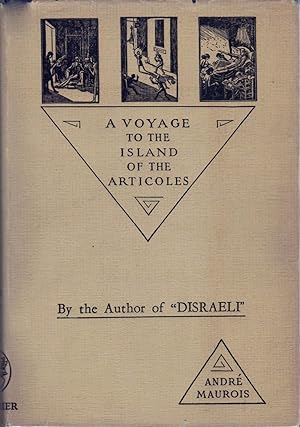
A Voyage to the Island of the Articoles by Andre Maurois (1928)
Quick satire about an island run by artists. Or at least where artists are the celebrities and sort of priests. Apparently 1928 was too early for the concept of a female artist which leads to certain disturbing qualities. The gulliver-esque satire is ok and the characters like able enough.
It did confuse me a bit, the artists are obsessed with people getting in touch with their feelings... is that an art thing? It seemed an odd thing to focus on.
Anyway i deducted a star simply because its a bit too slight. [2/5]
Boxen by C.S.Lewis (1910-ish)
I question the merit of reading any authors juvenilia. I'm also not the biggest Lewis fan, so with that context... i hated it.
The background piece is ok except it keeps referring to 'Surprised by Joy', so if you like this part it just makes you want to read that book instead.
The tales themselves all involved animal people, but arn't actually kids stories by any modern definition. The first is a weird little shakespeare play but it was ok. The main bulk of the stories however consist of a politic drama... its soooooo... boring! I spent most of the time trying to figure out if he was going for satire, or which characters i was supposed to like, or whether it was racist... or maybe anti-racist., or which bits of british history or fiction he was ripping off. However the only conclusion i arrived at was that i desperately wanted it to end :P .
The final 2 stories are an improvement, they're about reforming manners in the navy... wow.. it just keeps getting more exciting, (he said sarcastically). Actually though the final tale was quite acceptable and stopped me considering 1 star. [2/5]0 -
New Items:

One Last Mad Embrace by Jack Trevor Story (1970)
I feel a little bad for not liking this more. Its complete chaos a real 'shaggy dog' story as they say and it seems like something you should read at a quick pace but i've been in a bit of a rut lately so it went very slowly.
It is quite funny but there's also some really messed up stuff going on which can be a bit jarring. Also the main character is an author so he's constantly fictionalizing whats happening around him, usually coming up with some idea of whats going on that turns out to be completely wrong, add to that several characters who lie persistently.
After a while it felt like a british Thomas Pynchon novel or at least something like the Big Lebowski . Its quite filmic, which is normally a compliment but in this case it feels like it might actually work better on film than in book form. Although i can't imagine anyone willing to make something with a schoolgirl like in this :P . She was quite a problem for me but don't worry i don't think... it gets.. too creepy, your mileage may vary . She's as uncertain as everything in this book, aged somewhere between 12 and 28.
. She's as uncertain as everything in this book, aged somewhere between 12 and 28.
Given the style of writing, which is almost meta, probably one of those books enjoyed more by other authors than casual readers. [3/5]
Blind Corner by Dornford Yates (1927)
Pretty good adventure thriller. Almost feels like a YA book even though its characters are a bit older. Not great writing, i found it hard to understand the geography of certain situations, the descriptions were a bit muddled at times.
Not much in the way of characterization but what little we do get is quite odd which was entertaining :lol. Our POV character is ordinary enough to connect with but there's also a retired military intelligence officer who acts as the Holmes to our protagonists Watson.
Some might consider the ending to be a bit anti-climactic but i liked it. I would have liked it more if i could picture everything clearly but there was that problem with the writing i mentioned earlier.
Its not that there isn't a dramatic rush at the end its just not what you might be expecting.
Overall, some morally questionable english derring-do, fast paced and not without its charm. [3/5]
G8, Wings of the Iron Claw by Robert J.Hogan (1943)
Short and vicious WWI spy drama. Great first half but ends too abruptly. Also relies on the master-of-disguise cliche a bit too much. [3/5]
Film Items:

The Avengers, the Winged Avenger (1967)
One of the worst episodes of anything ever made :lol. Occasionally entertaining in its awfulness. [1/5]
Our Man Flint (1966)
James Bond parody, although its not really funny just 60's camp. Comes across at times like Austin Powers crossed with Doc Savage. The horrifying sexism of its utopian villians is interesting, but overall just about watchable. [2/5]0 -

House by the Churchyard by J.Sheridan Le Fanu (1863)
'Why, I suppose there isn't so tattling, prying, lying, scandalous a little colony of Christians on earth; eyes, ears, and mouths all open, Sir; heads busy, tongues wagging; lots of old maids, by Jove; ladies' women, and gentlemen's gentlemen, and drawers and footmen; club talk, Sir, and mess-table talk, and talk on band days, talk over cards, talk at home, Sir - talk in the streets - talk - talk; by Jupiter Tonans! 'tis enough to bother one's ears, and make a man envy Robinson Crusoe!'
Firstly the placename Chapelizod is prenounced locally Chapel-lizard. Being from Dublin i had more reasons to like this than most. While viking-era dublin is something you learn about at school, this lets call it... english-dublin, a dublin of tricorn hats, sedan chairs and absentee landlords, i havn't heard much about.
So i got something extra from recognising all the place names and knowing the geography of everything. At one point a murder is mentioned in passing, as havng occurred in clondalkin and i got a little chuckle thinking 'wow that place hasn't changed in 200 years' :lol.
It opens in a macabre and funny way and reminded me a lot in its setting and tone, of the Tim Burton 'Sleepy Hollow' movie. I remember thinking this is a nice setup can't wait to see what the actual story is. Then the setup went on and on, and on, until it dawned on me with a shudder, that this wasn't setup this was the main text. Let me return to the 'Sleepy Hollow' movie for demonstration purposes.
Imagine if in that film the headless horseman, Johnny Depp and Christina Ricci's characters are all still in there, but pushed to the very periphery of the script. Their story is still happening but your stuck following the lives of the extras only occasionally getting a glimpse of the main characters in the hazy distance.
In the moment the incidents are readable and go from ok to good but theres no point to any of it. Tolerable while reading but an absolute struggle to convince yourself to pick the book up again once set down.
The writing if ok, see quote, is quite organic feeling, like your listening to it even while reading. There are some accents and an occasional lisp but it was neither a plus or minus for me.
Finally at the 60% stage the plot(s) start. I use the plural because 3 of them come along at once and the next 30% rushes along in what feels like a single breath, before we grind to a halt for the last 10% of clean up, which somewhat tested my patience once again.
Many might forgive the first 60% as theres some really good stuff in the latter portion but even these parts arn't without they're flaws.
The author has a remarkable knack of seeming to pick the wrong viewpoint for most situations. It almost always feels like your following the wrong character or focusing on insignificant things while missing the important ones.
Objectively based on my usual scoring this is 2 stars, what i give to failures which have some small worth, the last 40% is quite compelling, mostly. The previous 60% has a lot of charming albeit pointless incidents.
However i've taken the liberty of deducting a star based on personal hatred, it has been quite sometime since i had that dubious honour . More work than 'Mysteries of Udolpho' or 'Melmoth the Wanderer'. Feels similar to the work of 'Thomas Love Peacock'... except terrible :P . [1/5]
. More work than 'Mysteries of Udolpho' or 'Melmoth the Wanderer'. Feels similar to the work of 'Thomas Love Peacock'... except terrible :P . [1/5]
The Shadowy Street by Jean Ray (1927)
A pretty interesting short tale. The first half is a remake of 'The Horla by Guy de Maupassant'. Te second-half is nicely weird but quite confusing. I'd certainly have given it a higher score if it was a little less obtuse. [3/5]
The Rain Maiden by Theodor Storm (1863)
Short fairytale. Pretty well told, some humour, however it is also pretty straightforward. [3/5]
Ode to those Lost at Sea By William Ashbless (1974)
Short poem, it was ok a little bit mundane. But it was designed to make fun of the poetry of the time. [2/5]0 -
New Items:
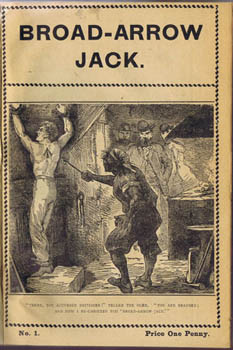
Broad Arrow Jack by E. Harcourt Burrage (1866)
Everything i'm about to say applies to the first 80%, we'll get to the last 5th, which i like to refer to as Season 2, further down.
Forget Superman, Doc Savage, Hugo Danner, The Nyctalope or even the Scarlet Pimpernel, i am declaring Broad Arrow Jack the first superhero!
And i really mean that, even if it had been published first the Pimpernel, despite being the archetype for Batman/Zorro doesn't really read as a superhero story. Perhaps its too well written .
.
This pulpy tale however, with its inhumanly strong and stoic hero, on a quest for justice/vengeance against an international gang of badguys, led by the Ogre, has all the superhero tropes.
It does the 'who created who' the villain or hero trope, the broody orphan hero, the hero wondering abut the cost of his campaign when sidecharacters die in its pursuit, the villians trying to turn the people against the hero etc.
Like many superhero tales its set in a fictional place, we in fact never learn what country its in. They were on the way to australia and end up somewhere with no apparent natives, all the locals are foreigners here to dig for diamonds. All the locations are very generic, the Diamond Fields, Hookey Settlement, Peaceful Village, Golden Pass, Black Rock etc.
We have the Alfred style servant and fatherfigure character. At one point our hero even picks up a young sidekick called Dick (his last name isn't Grayson but still ). Unfortunately it also has the comicbook trope of the constantly escaping villains which can become rather exasperating.
). Unfortunately it also has the comicbook trope of the constantly escaping villains which can become rather exasperating.
But ok i don't want to oversell the superhero elements, while they are there (and many more than i mentioned) they're never around for very long. This is a serial and the plot is a constantly moving target. The author had no idea how long it would be so the initial plot isn't enough to keep things going.
Only about every 3rd chapter or so is with the hero, it tends to go, hero chapter, comedy relief chapter, side character/villain chapter. Since our hero is the 'dark and gritty' type most of the personality is provided by the side characters or even the villains, which get a fair amount of background, some of them anyway.
However by the halfway point i was getting pretty sick of the comedy chapters and by the three-quarter point i was even sick of the non-comedy sideplots, but these weren't constant feelings they come and go.
Due to when this was written you might expect some racism, most of it is avoided simply because of the lack of natives but of the three characters of colour in the book, one is still the main villain and the other two can barely be considered human. This is mostly because the latter characters Caliban and the Tiger, are actually doing a rendition of Caliban and Ariel from shakespeares The Tempest. The Tiger does get a little human characterization in Season 2 after he teams up with Dick (to start forming the Teen Titans i'm assuming :P).
Anyway at the 80% mark i'm pretty sure they brought in a new writer and what i call Season 2 begins. New enemies are introduced and the heros goals recontextualized. They even throw in a One Year Later bit (maybe it was 3 months, either way). The new writer is a bit meaner, their sense of humour if they have one, is a bit different, the writing a bit more racist, a bit flatter. The characterizations become a little different. If it was all written like the last 20% i don't think i'd call it a superhero story its just standard adventure/detective fiction.
On the upside, the new writer doesn't change scenes as much so you can read more chapters in a row without feeling like you need to pause, its quicker. Also theres one good fight, but there's evidence to suggest that was written or at least outlined by the original author.
Also, as pennydreadfuls go its a lot more consistent than Varney the Vampire despite changing authors. Its not shakespeare (apart from the bits of the Tempest and Macbeth it stole :P) but despite its length i'll still give it 3 stars, just. [3/5]
Sherlock Holmes, the Creeping Man by Arthur Conan Doyle (1923)
A short mystery not really needing much investigation. Interesting idea though and some decent characterization of the Holmes/Watson relationship. [2/5]0 -
Advertisement
-
New Items:
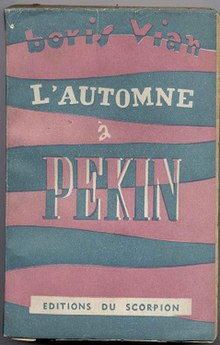
10). Autumn in Peking by Boris Vian (1947)
The story such as it is, is pretty basic, kind of like a play you know? Group of people in the desert. Bit of Kafka here and there but not too much.
Some humour, plenty of vulgarity. It is surreal but most of that is confined to the first quarter. I don't do well with surreal but in this case a lot of it was inanimate objects described like animate creatures, which is the very essence of most animation, so i just pretended those parts where a cartoon .
.
The delivery of the dialogue can be quite stilted not sure if thats in the original or just the translation, which must have been a nightmare so well done Mr.Translator anyway.
Not much more to say, very Indie, its nothing amazing but i was never bored. [3/5]
09). The Amazing Adventures of Kavalier and Clay by Michael Chabon (2000)
The tepid occurrences of mostly Kavalier, as it would be more accurately titled. Is one of those stories which takes a certain period of history from an odd perspective. Kind of like 'Forrest Gump' or the 'Curious Case of Benjamin Button'.
In this case the 40's and 50's. The main problem with the book is really the characters, or lack of focus on the characters to be specific. When the author really zoom's in and shows what people are feeling then you become interested, its compelling at least if not amazing.
The entire last quarter is like this, however before that character connection only comes in short spurts. The author changes character perspectives or goes for a more remote viewpoint and you just stop caring.
Even at its best though its still very slight. Much of the appeal is made up of the references to 40's obscura. Its like the author did a bunch of research and came up with a list of odds and ends he was determined to get into the book regardless of what that might do to the pacing or narrative consistency.
In addition none of these references, even the comicbook stuff is particularly indepth. The whole thing feels remarkably slight given its length. The tone can be odd too, while occasionally vulgar its also remarkably sanitized, i felt like i was reading a YA novel at times.
Overall it feels like it was written by a high brow author then dumbed down for a millennial audience before being edited by a Board of Education Committee. [2/5]
5 issues of The Fly (1961)
Co-Starring Fly-Girl. Suspiciously similar to Ant-Man and the Wasp comics. [3/5]
3 issues of Jet Black, aka Space Ace, aka Rocketman (1947)
Bit more overwritten than most comics. A lot stolen from the Barsoom pulps. [3/5]
10 issues of Dr.Occult (1936)
Cheap looking supernatural detective comicstrip. Awful but really grows on you . [4/5]
. [4/5]
10 issues of Super-Police (1936)
Starring Rex Cosmos. Just a pirate pulp converted to sci-fi. Certain odd humour though. [2/5]
2 issues of Crash Carew (1947)
Four page space comicstrips with the most basic of writing but decent art and an interesting font for some reason . [2/5] 0
. [2/5] 0 -
New Items:

08). Death of a citizen by Donald Hamilton (1960)
The spy genre, or ex-spy/detective genre, is not one i frequent too often but i've read a few and while not as detailed as a Le Carre or Deighton and still a bit politically incorrect, this is a heck of a lot better than say a Bond story.
A little bit pulpy, it ain't shakespeare but its quick and too the point, compelling and well thought out.
The author does a great job establishing his main characters with some flashbacks, although this almost becomes a problem. So many flashbacks interrupt the early stages that in real time the 1st third of the book covers only a couple of hours, so it might feel like you havn't accomplished much when reading those parts :P . But its a minor quibble.
While the main character might feel a bit dated thats rather the point, and he's counterbalanced somewhat towards the end with some more modern less brutal characters. Its remarkable how modern and fresh the story feels for something written in 1960.
If i was grading on a curve against all literature it would be a lower score but in terms of the pulpy exciting spy/detective story that its trying to be its essentially flawless. [5/5]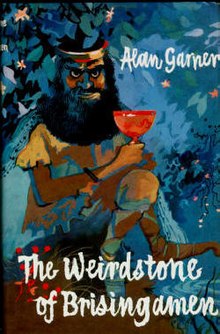
07). The Weirdstone of Brisingamen by Alan Garner (1960)
High fantasy children's book. This is a strange one, at times it felt like it was doing to fantasy what 'Alien' or 'Red Dwarf' did to sci-fi. It makes things just seem very mundane, not boring, just oddly normal and unglamorous, i quite liked those parts.
It reminded me of 'Over Sea, Under Stone' until about the 15% mark when the author just decided to give up and steal as much of 'The Lord of the Rings' as he could get away with, which turned out to be a LOT :P .
The entire rest of the book is one long chase sequence and the near constant thefts from LotR did become a bit annoying.
The language can be a bit tricky for younger readers, there are a lot of names thrown around too and some accent writing. As the plot never slows down there isn't too much in the way of jeopardy or at least suspense, but the speed of events and the ridiculous pileup of fantasy concepts stopped me getting bored.
Its kind of terrible in a way and funny, possibly on purpose? It became so absurd in the latter portions it started to remind me of 'Labyrinth'. Fun enough as LotR's ripoffs go. [3/5]
1st issue of Masterman (1952)
Odd sense of humour, quite a bit like Shazam interms of powers. [2/5]
2 issues of Miss America (1943)
Standard superhero fare, too perfect a hero to be interesting. [2/5]
Film Items: _
_ _
_ _
_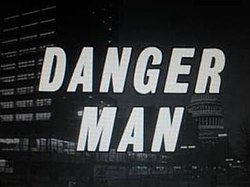
Avengers, Lobster Quadrille (1964)
Its got a nice if rather pointless Alice Through the Looking Glass motif going on. [3/5]
Avengers, Bizarre (1969)
Even sillier than usual. Almost as camp as the 60's batman show. [3/5]
New Avengers, Eagle Nest (1976)
Its got an interesting storyline and some decent chemistry, i'm probably still being a bit generous on the rating. [4/5]
Callan, Death of a Hunter (1969)
Really good brutal spy drama but it was an end of season episode. [4/5]
Department S, The Mysterious Man in the Flying Machine (1969)
More violent and raunchy than similar shows. Only a half-hour so the story is jammed in pretty tight. [3/5]
Danger Man, the lonely chair (1960)
Another half-hour show, its decent detective/spy stuff. [3/5]0 -
New Items:
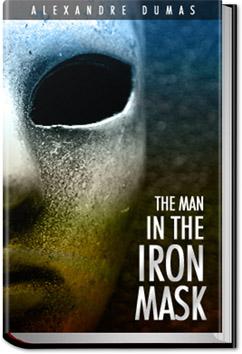
06). The Man in the Iron Mask by Alexandre Dumas (1847)
I was reluctant to read this due to the ubiquity of the Musketeers and because for whatever reason i had assumed Dumas to be a high-brow difficult author. Boy was i wrong, this had such an easy almost pulpy tone to it, perhaps a tad hard to parse during some dialogue but overall very smooth and a nice style.
I was in, the first 20% was 5-stars even with some interruptions to worldbuild, but then after a climax it suddenly switches characters. Which it will continue to do throughout the novel as there isn't actually any main character. Its a terrible structure where the momentum drops at each switch and has to start to build up again. Still Dumas manages to make it work, and the awful structure does at least mean you never know what might happen next.
Dumas even gets some use out of Raoul, the most worthless of side characters, in his first major section at least.
So not 5-stars but still a solid 4... until we reach the conclusion, if i can use that term since its about 10 chapters long. One major character goes through a complete personality switch for no reason and the rest is just turgid wrapping up and politic history lessons and absolutely none of it has anything to do with the actual title of the book.
An 80% of good to great with a soft squidgy mess at the end. Like driving a sports car into a swamp. [3/5]
Skimpole's Crusade by Martin Clifford (1908)
Short tale by the same people behind Billy Bunter. Skimpole is basically Sheldon from BigBangTheory, but people put up with his nonsense a lot less. This time he's become a socialist. [3/5]0 -
New Items:

05). Infinite Jest by David Foster Wallace (1996)
Aarrrgghhh!!!! what a frustrating ending... but given the nature of the story artistically justifiable i suppose . This whole book is like a love letter to 70's writing, its science-fiction elements, social elements and some of the styles it uses all screamed 70's to me but better written than most 70's stuff.
. This whole book is like a love letter to 70's writing, its science-fiction elements, social elements and some of the styles it uses all screamed 70's to me but better written than most 70's stuff.
Its mostly about drugs, or the thing drugs are used to fill in for. Until close to the end there wasn't really any point, or goal in sight. Its a bit like 'The Sound and the Fury' or 'One Hundred Years of Solitude', in that its mostly about a certain family, with references to a few different generations, this has a lot more side-characters though.
Its told in a non-linear fashion and the first 20% is the most confusing, but also the most innovative, it feels like there are a lot more scene changes and different 70's styles in use here than later. From 20-50% percent was the low point for me (still 4 stars though). It seems to get a bit flatter, after the 20% you have a pretty good grasp on who's who and whats happening, the new car smell has worn off. However by the 50% i was fully invested in the characters and their world which upped the enjoyment again.
Its also sarcasticly edited.. if thats a thing, which i guess includes the abrute ending but also covers the use of endnotes and non-linear style. While some of the endnotes are pithy others run for 20 pages, and some of those endnotes have their own endnotes , which certainly felt sarcastic to me
, which certainly felt sarcastic to me  . Also some of the scene changes are so artificial you can practically envision the editor cutting and pasting a massive piece of text into the middle of another scene with a slight evil grin on his face.
. Also some of the scene changes are so artificial you can practically envision the editor cutting and pasting a massive piece of text into the middle of another scene with a slight evil grin on his face.
But the writing is easily worth the price of admission, Wallace's ability to construct memorable scenes is... well its endlessly entertaining . This isn't 'funny' by the way, i mean in places it is, but overall its about as funny as a Terry Gilliam film... "Brazil" in particular springs to mind.
. This isn't 'funny' by the way, i mean in places it is, but overall its about as funny as a Terry Gilliam film... "Brazil" in particular springs to mind.
Its also really dark, there are so many bad drug trips in this it resembles 'Requiem for a Dream' in places, only slightly mitigated by the sarcastic tone which hovers around the novel.
Overall i enjoyed almost every page (except the last where that joy turned momentarily to rage :P ) which considering the length feels like an extra special achievement. [5/5]
04). The Eye in the Pyramid by Robert Shea & Robert Anton Wilson (1975)
A conspiracy satire. I thought at first it might be a direct retelling of Call of Cthulhu which it isn't... but the Lovecraft influence is strong and not hidden, the necronomicon and lovecraft both appear in the tale but so does everyone else, machen, chambers, james bond, 20,000 leagues and many other things get referenced.
Knowledge of 70's america, the hippies, beats, riots etc all useful as might be watching the Public Enemies movie.
It never takes itself too seriously, there's even a couple of reviews of the book in the book complaining about how terrible it is , the sections on conspiracy theories and numerology can be boring but again they feel like they are intended to annoy.
, the sections on conspiracy theories and numerology can be boring but again they feel like they are intended to annoy.
The best (and for some people, worse) thing about the book is its structure. You know the way some novels have this floaty omniscient narrator, well this story goes one step farther as all the characters are sort of connected on some psychic level and you follow the connection from place to place.
So you might have 5 different characters in different times and places doing different things all within a single paragraph. Or you might have Bleed. You'll be following two detectives in new york while you keep hearing a chant of We Will Not Be Moved, without knowing where its coming from, until the scene suddenly switches and you find yourself at a peace rally 3 years earlier. To make things even odder sometimes the characters themselves start hearing or seeing whats happening to each other.
Its all delightfully chaotic and i don't know whether its to my credit or shame that after a while most of starting making sense :P . If it was a complete story i think it would be five stars. Confusing, witty, filthy, non-pc with some lovecraftian elements and a porpoise named Howard whats not to like . [4/5] 0
. [4/5] 0 -
New Item:
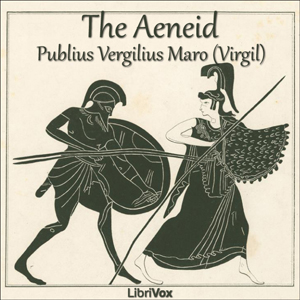
03). The Aeneid by Virgil (19BCE)
"..Is it that the Gods inspire,
..this fever of the breast?
Or make we gods of but a wild desire?"
So i read the 1907, Edward Fairfax Taylor translation except for a few chapters on audio from Librivox which was the Dryden version. I also looked in every so often on the PoetryinTranslation version because they use classical paintings as illustrations which is pretty cool.
The Taylor translation came with a full set of annotations which were very useful.
The poem overall is a bit awkward, some of that might be the translation but most of it is because Virgil likes to use these elaborate little stories for metaphors and by the time he's finished i often had no idea what point he was trying to make :lol.
Large portions of the story are also fairly redundant and there are various asides to stroke the roman ego. There are also a lot of characters but you never really get to know any of them very well. Most of them being introduced only a few lines before they die .
.
On the upside many of the battle scenes are good, it really shows the fog of war and costs. Dido, Juno and everyone really, gets a chance to show their side of the issues, its a surprisingly evenhanded tale.
I also like that Aeneas is so average, he's not particularly brave or cowardly, smart or stupid, good or bad he's just in charge because people know his mom, like a slightly less effective Sterling Archer .
.
Anyway not my favourite epic, some boredom, some parts of interest. [3/5]0 -
Advertisement
Advertisement



